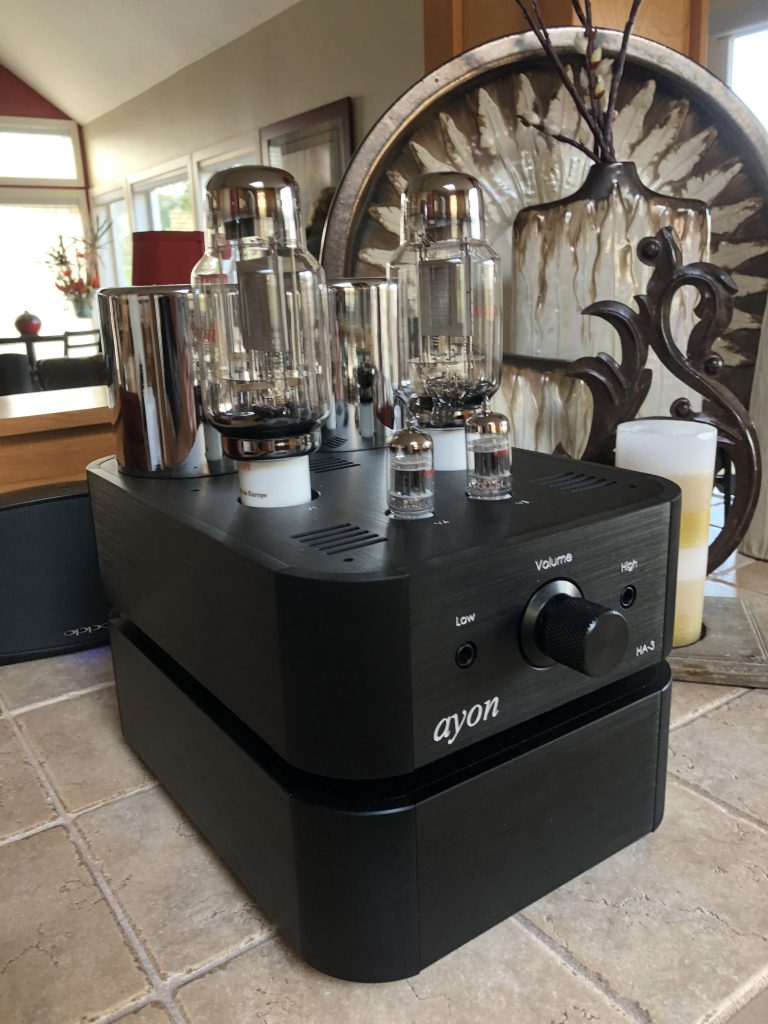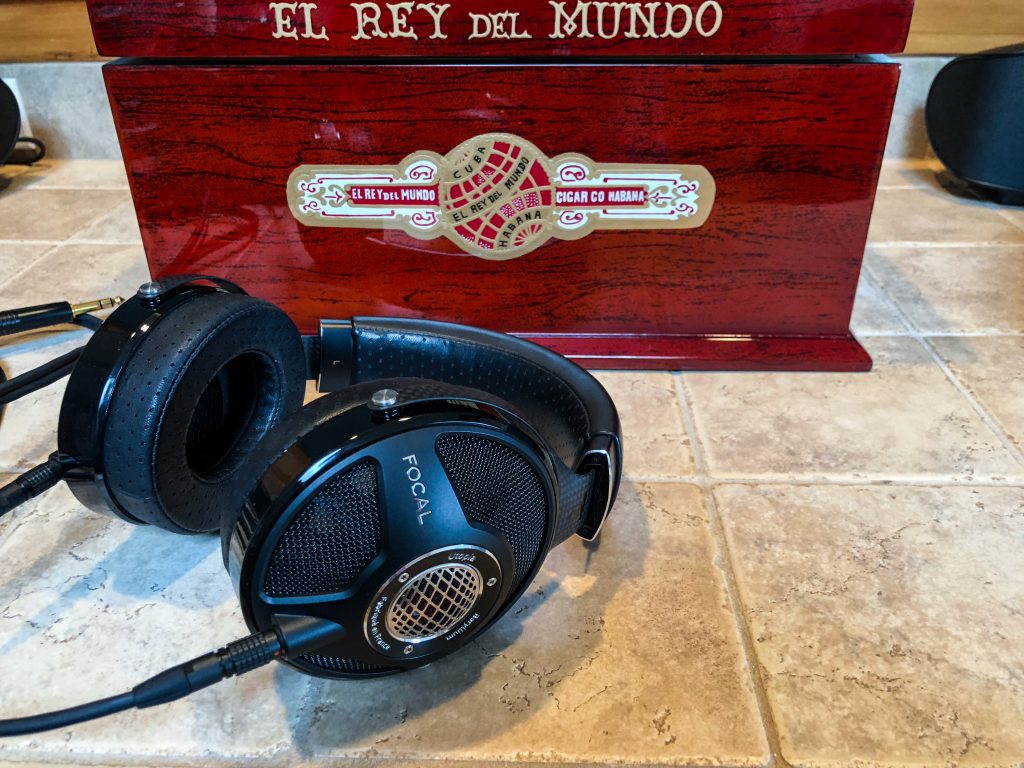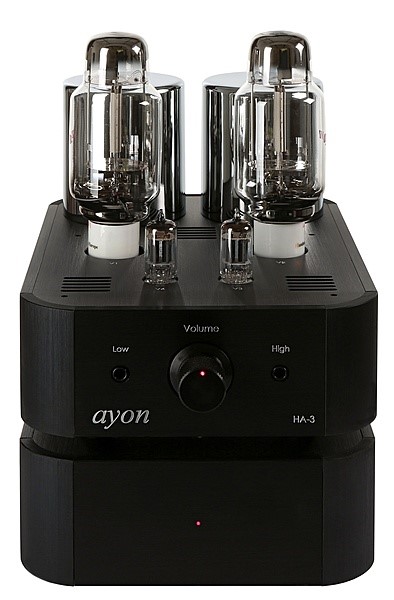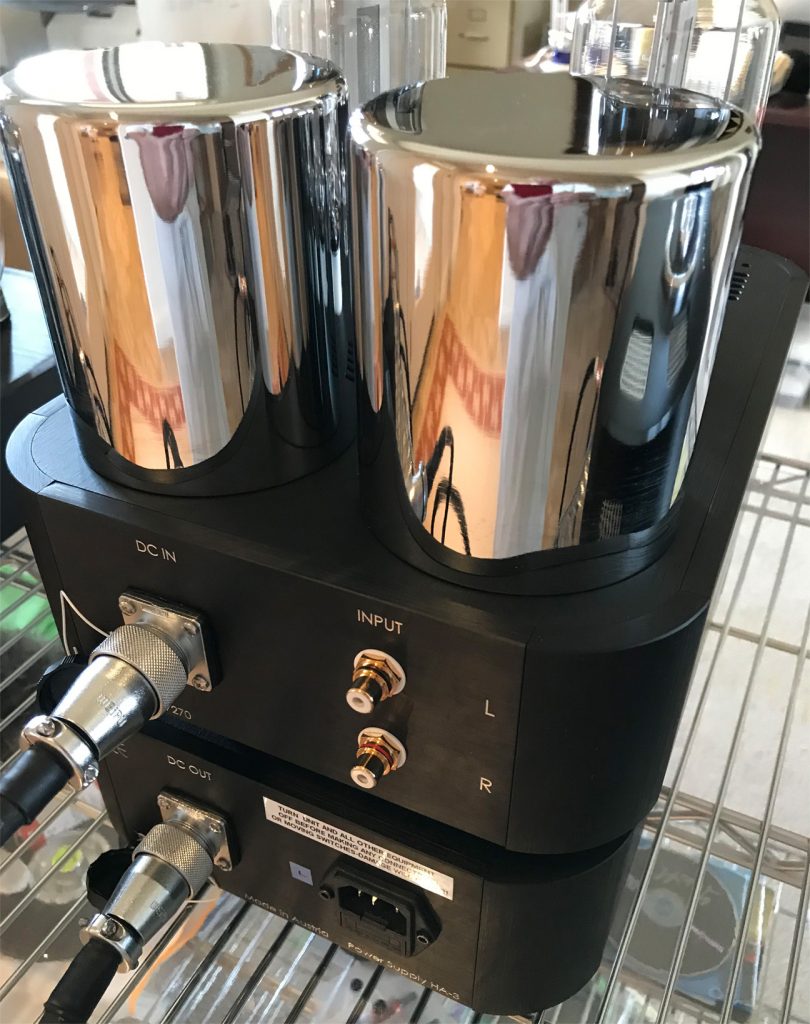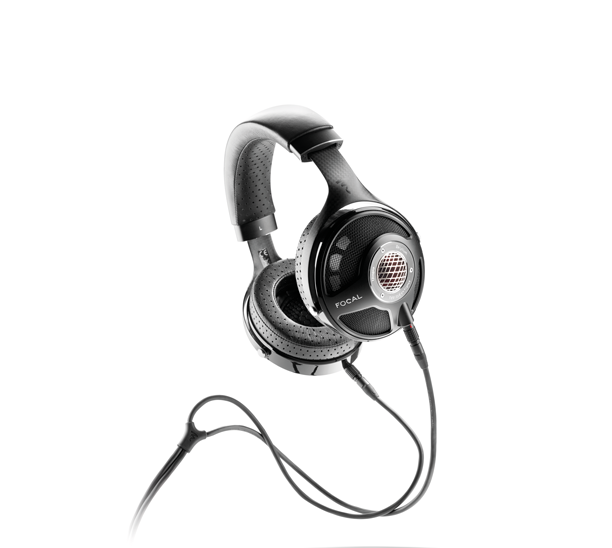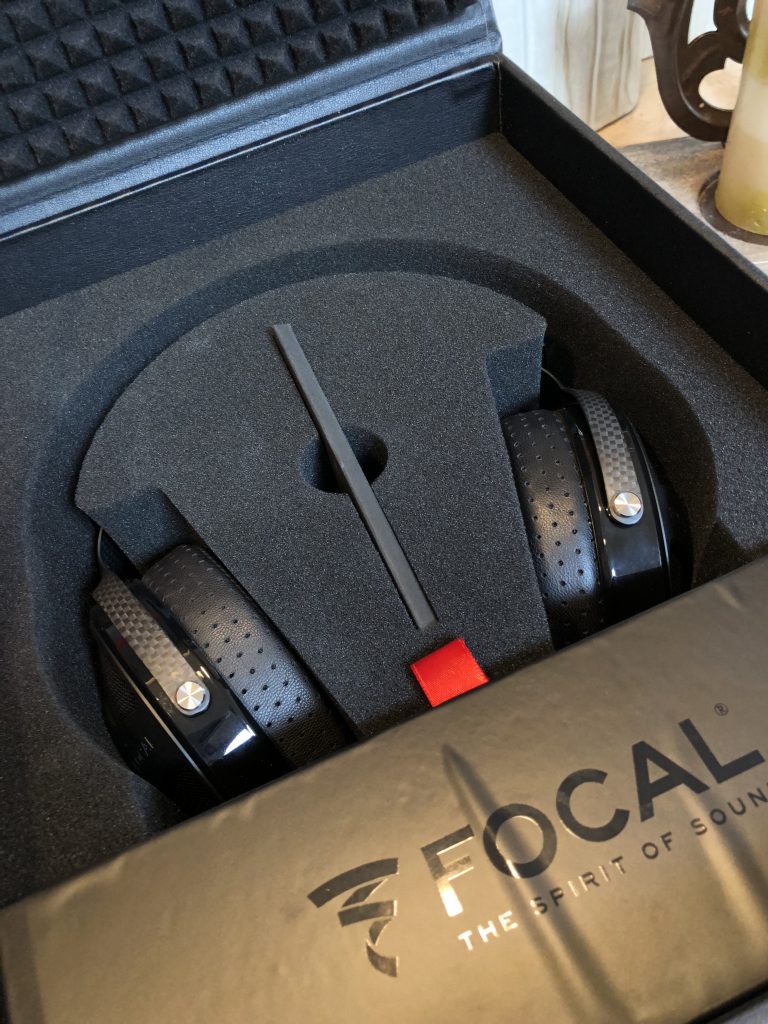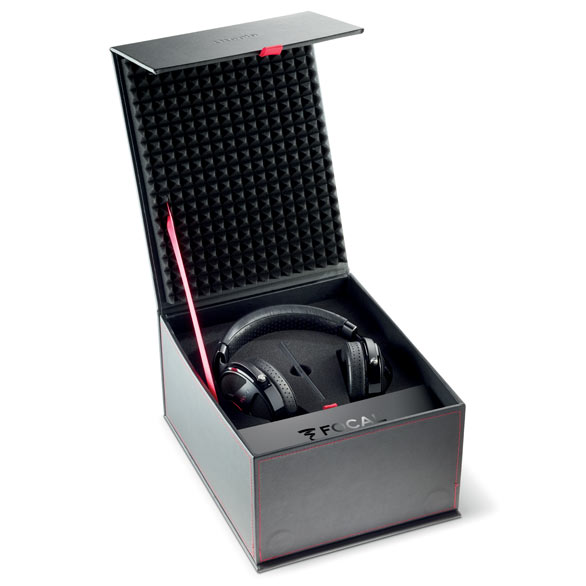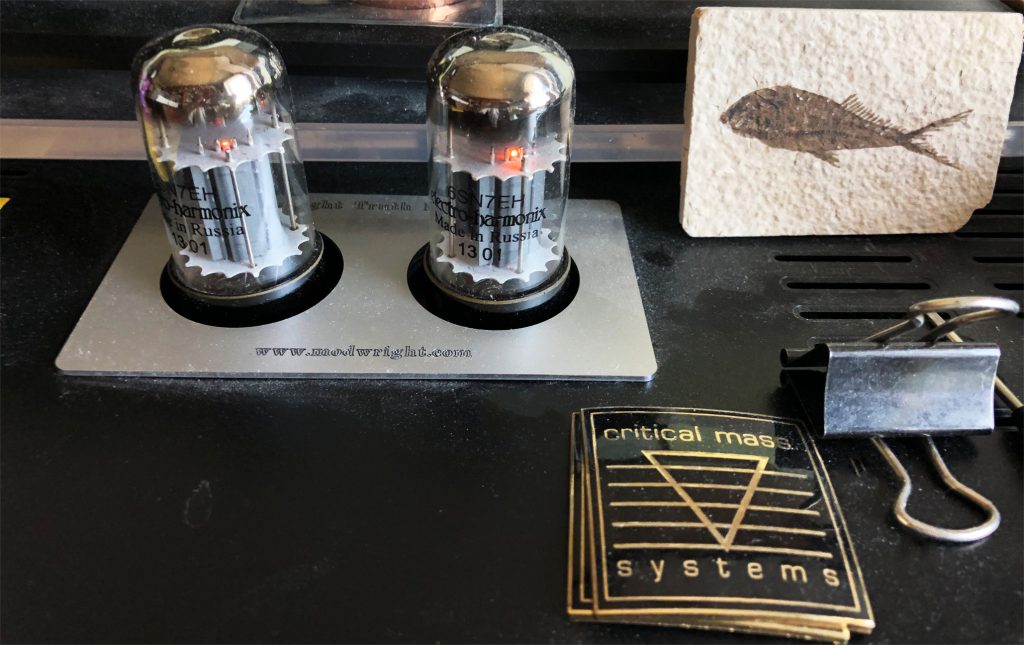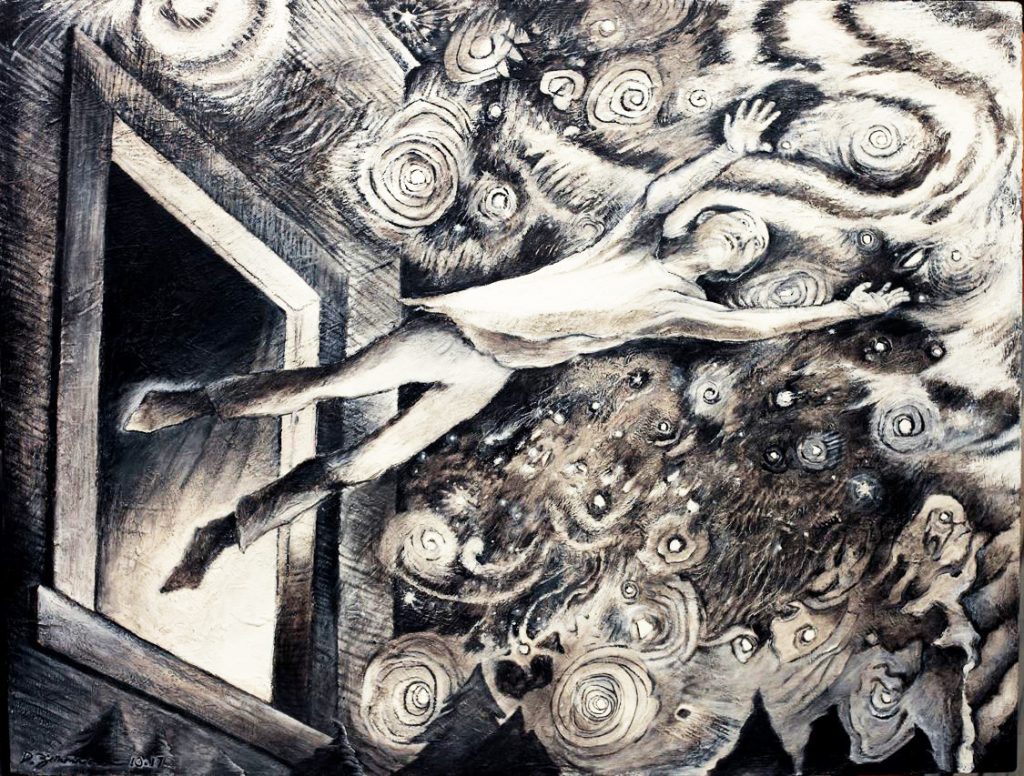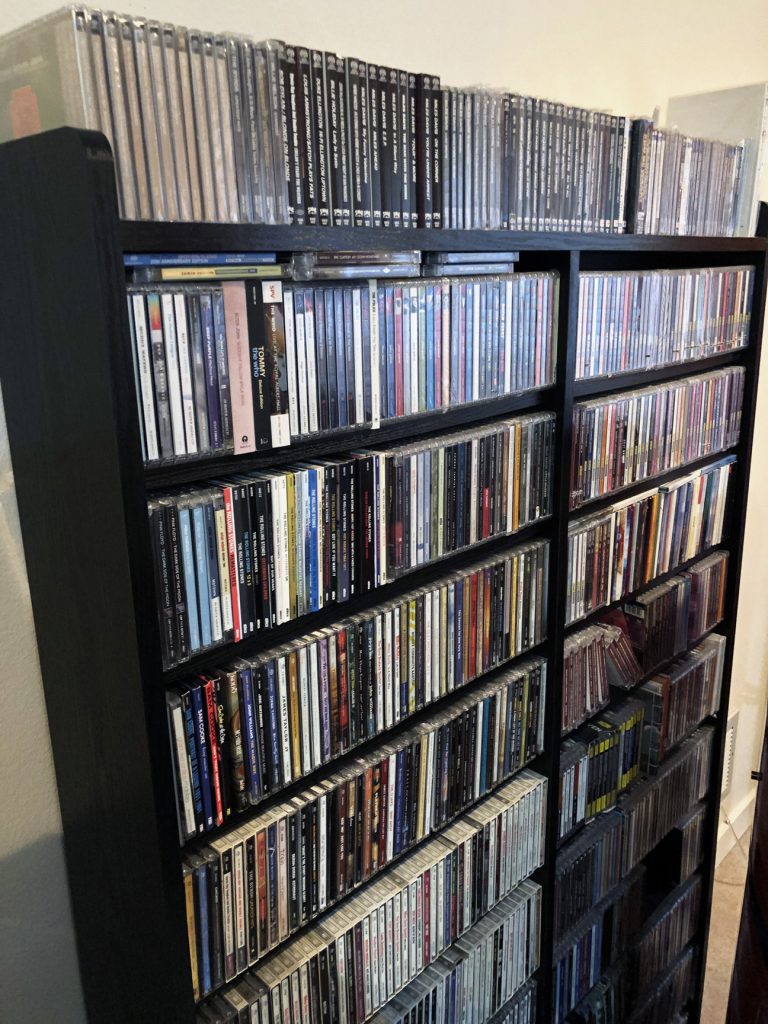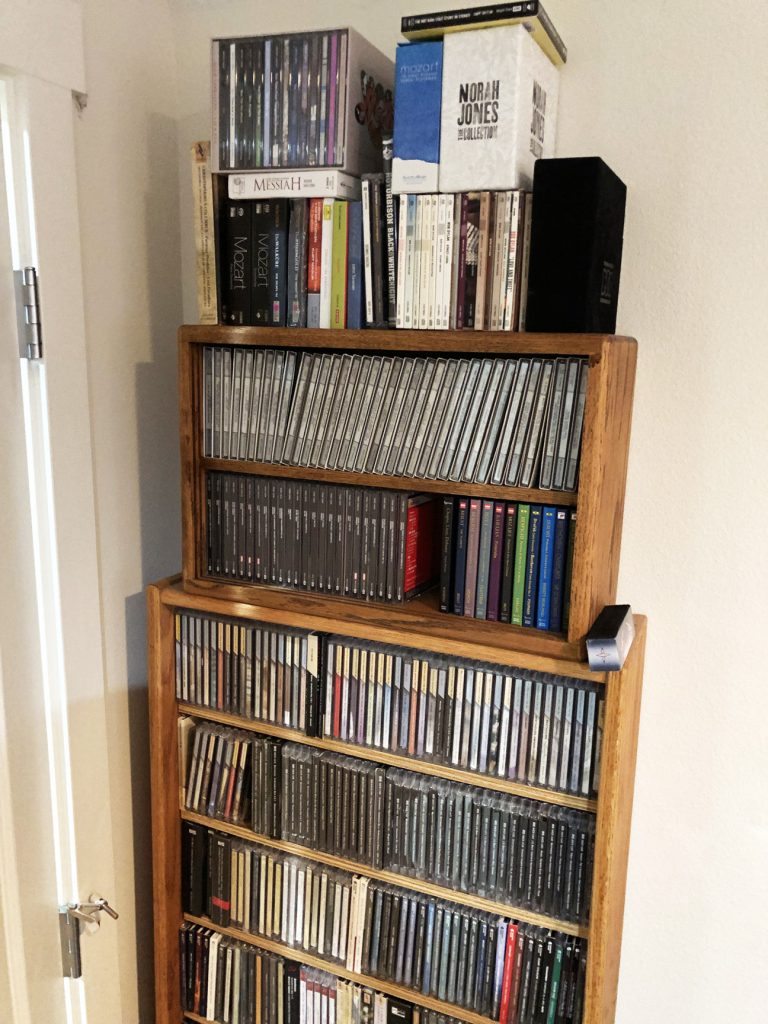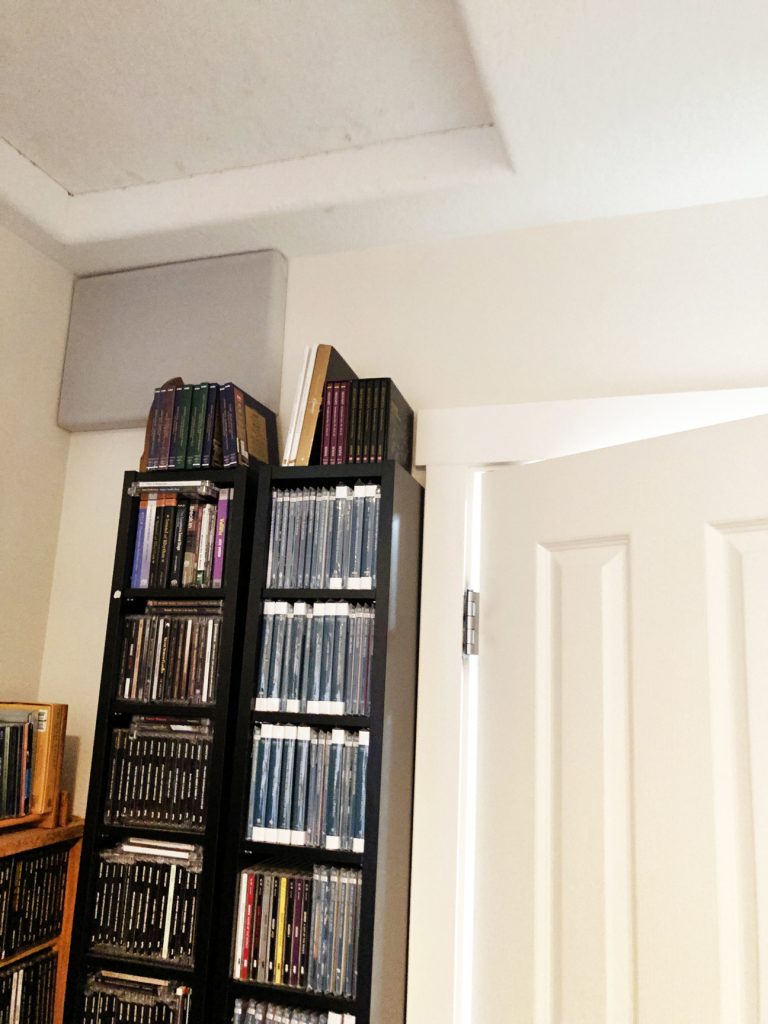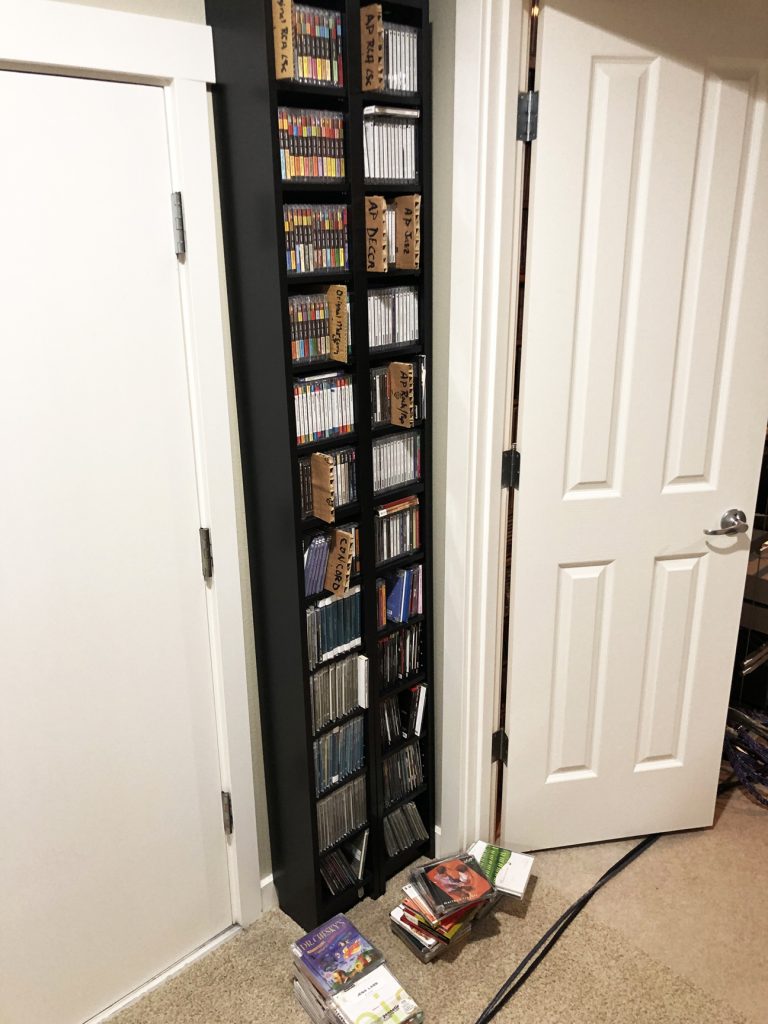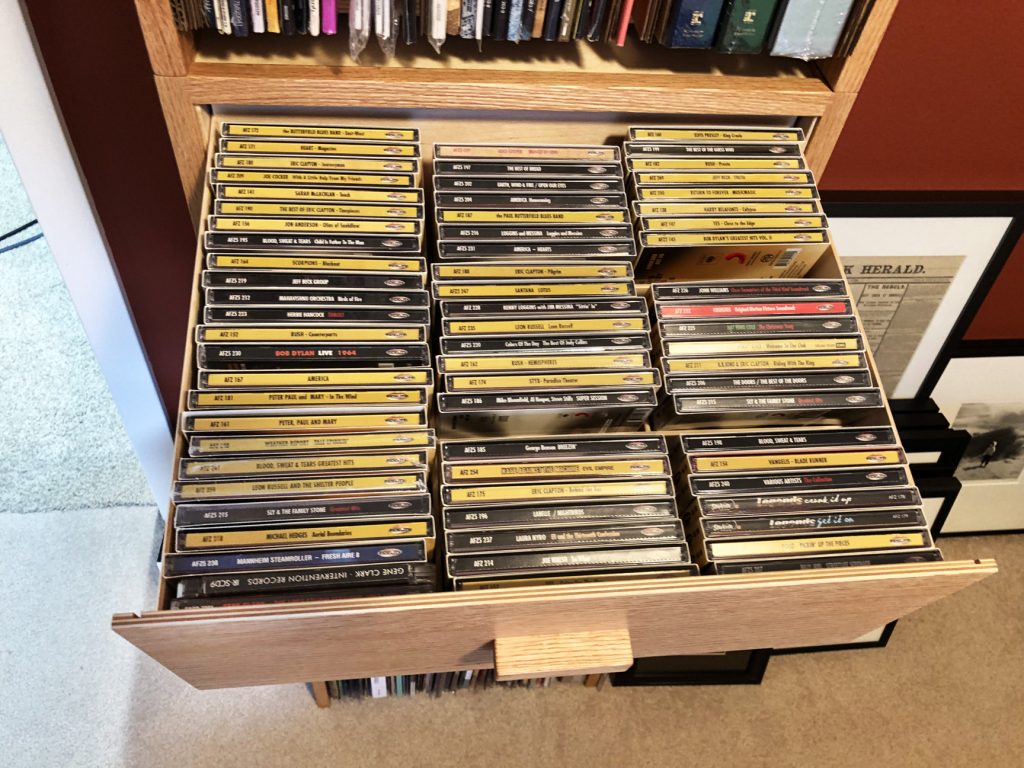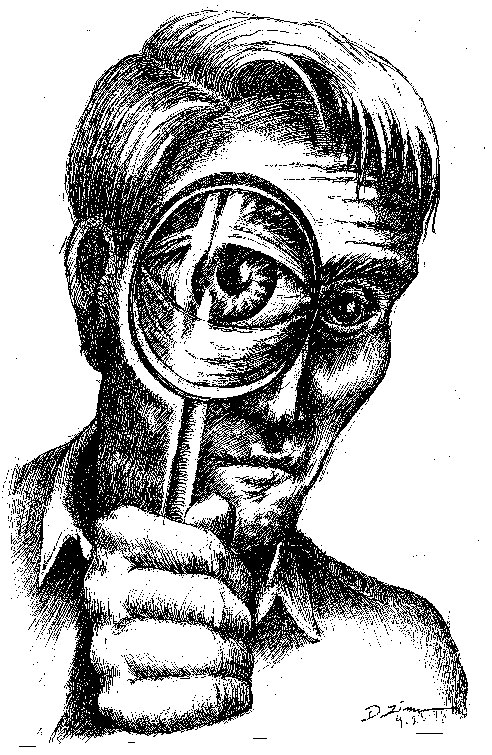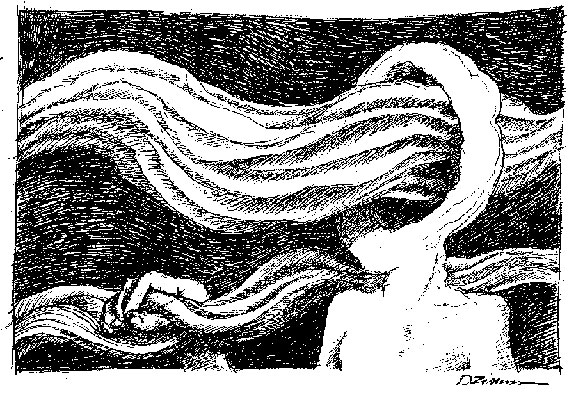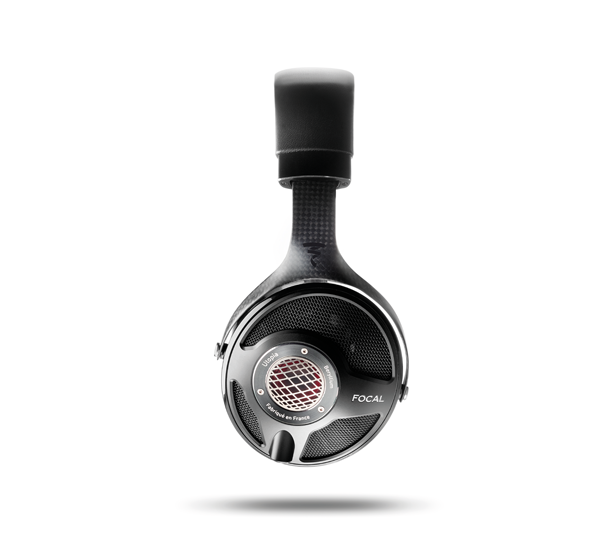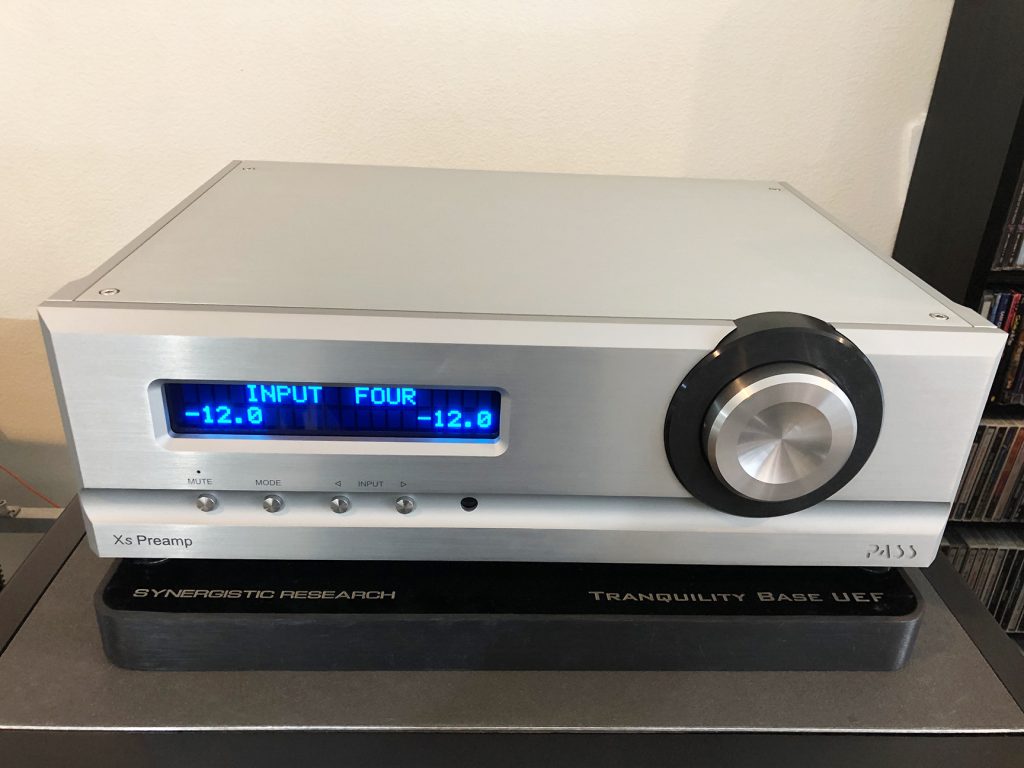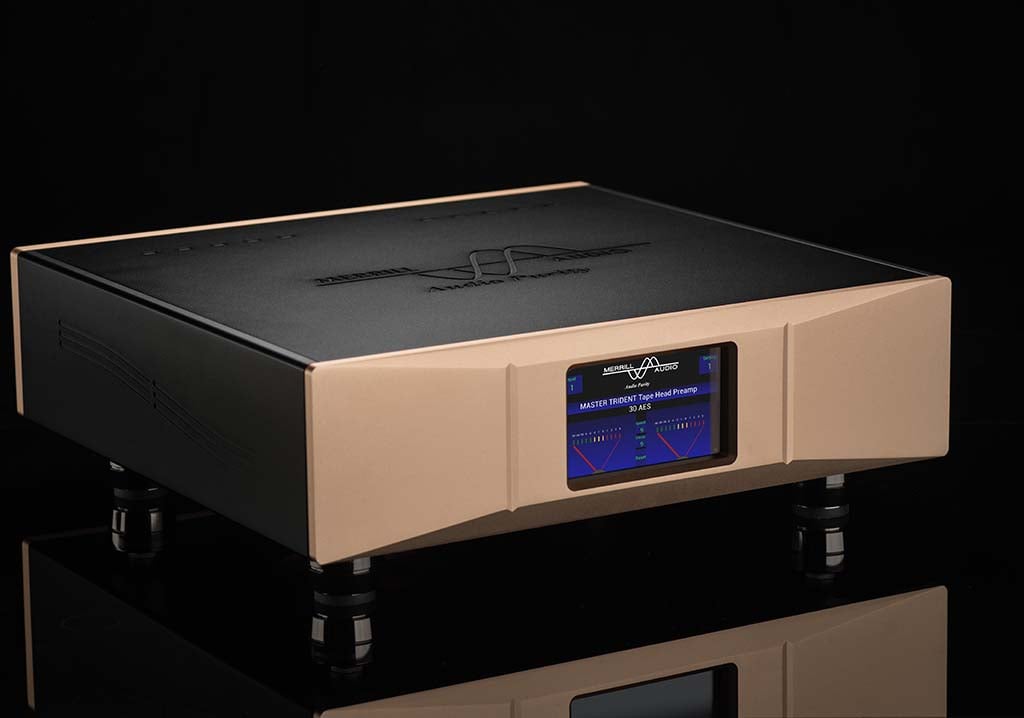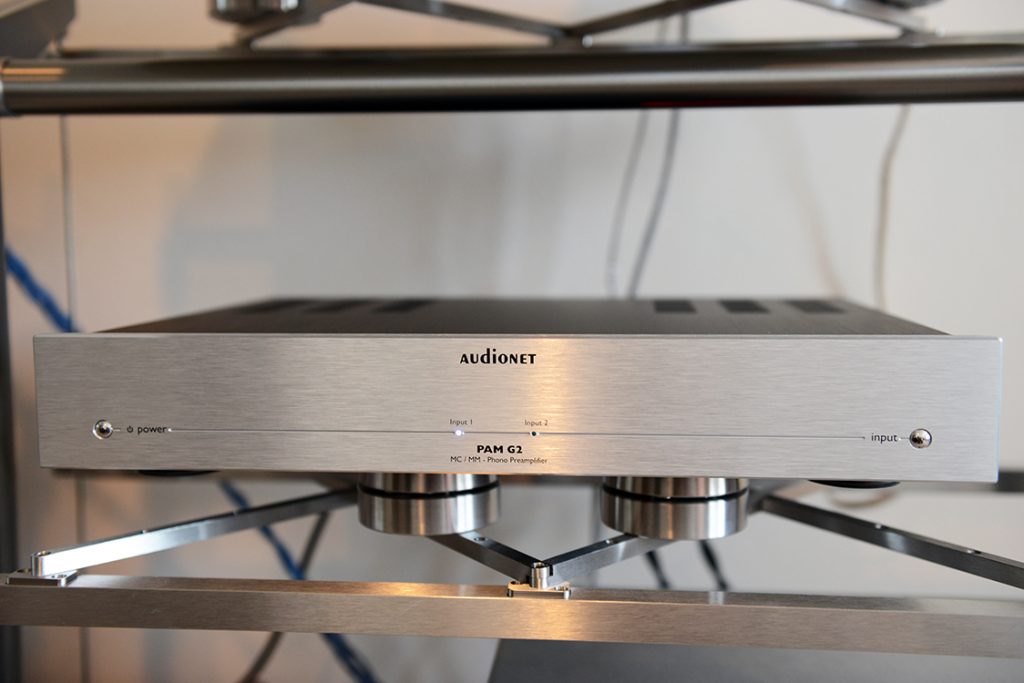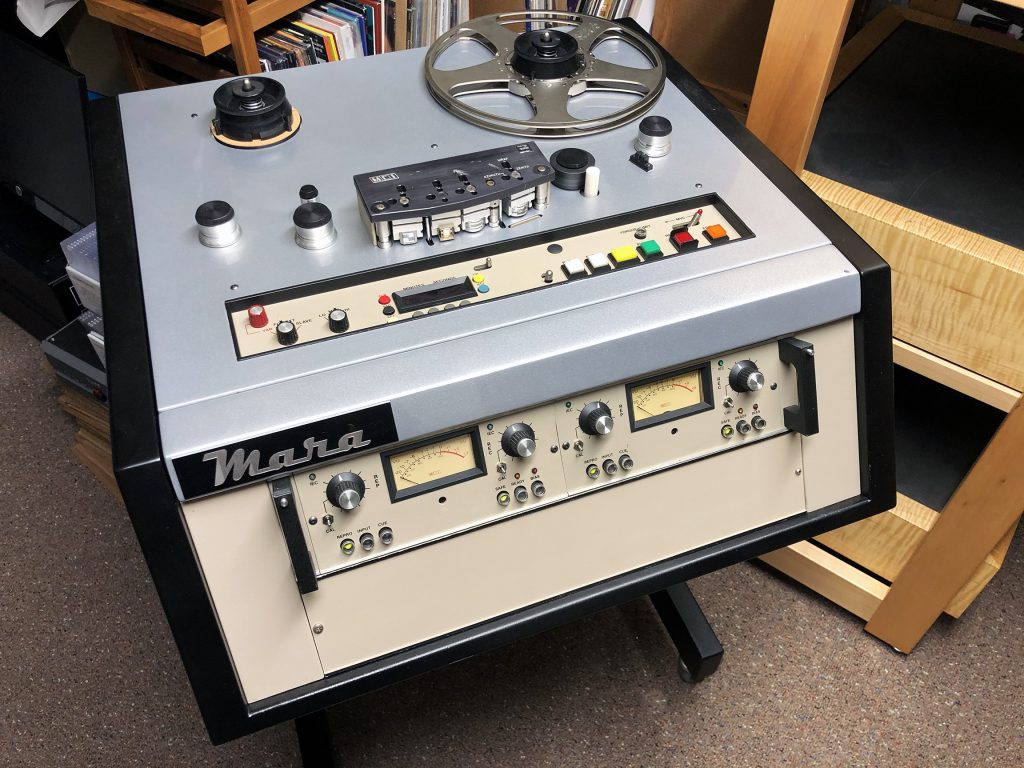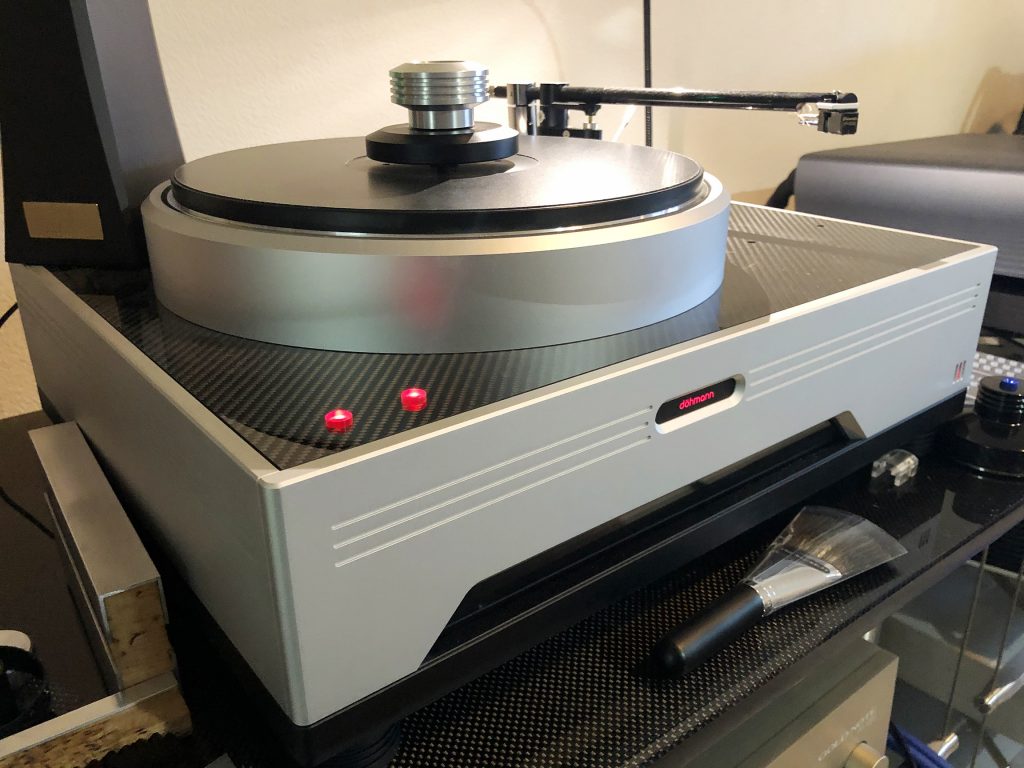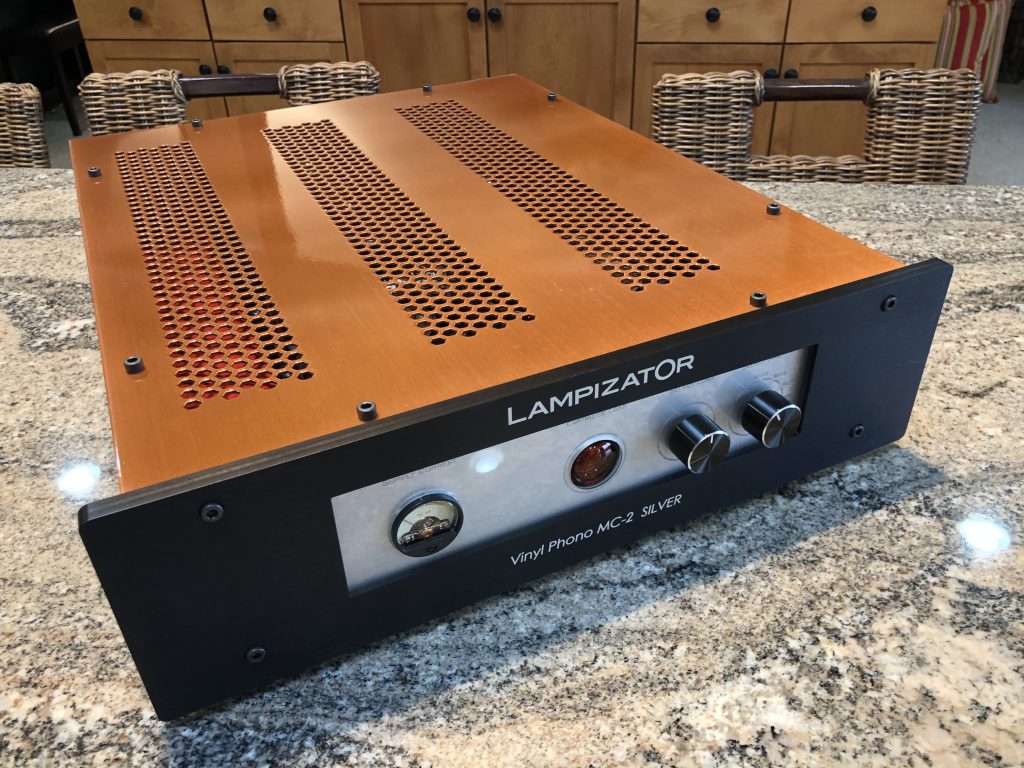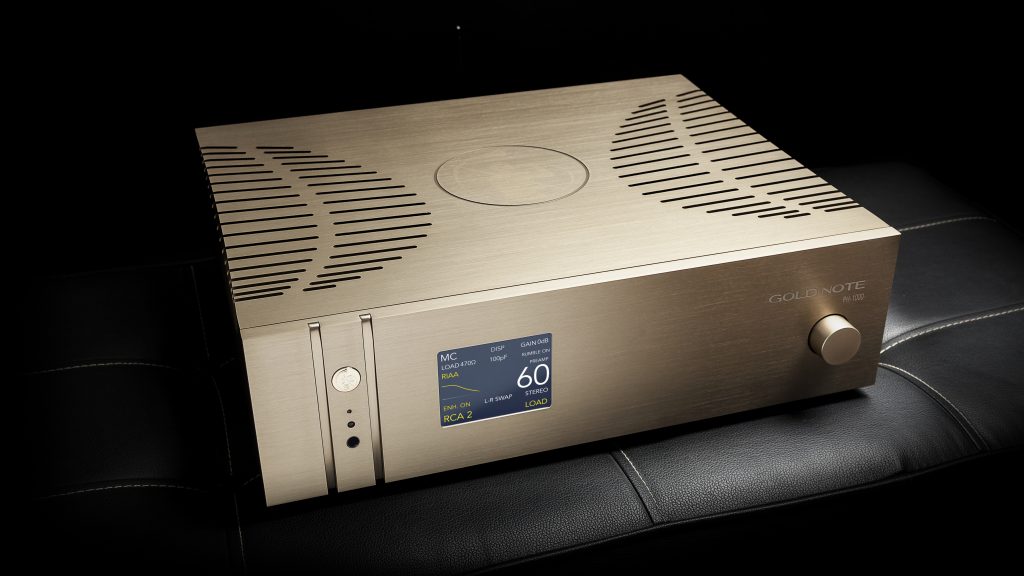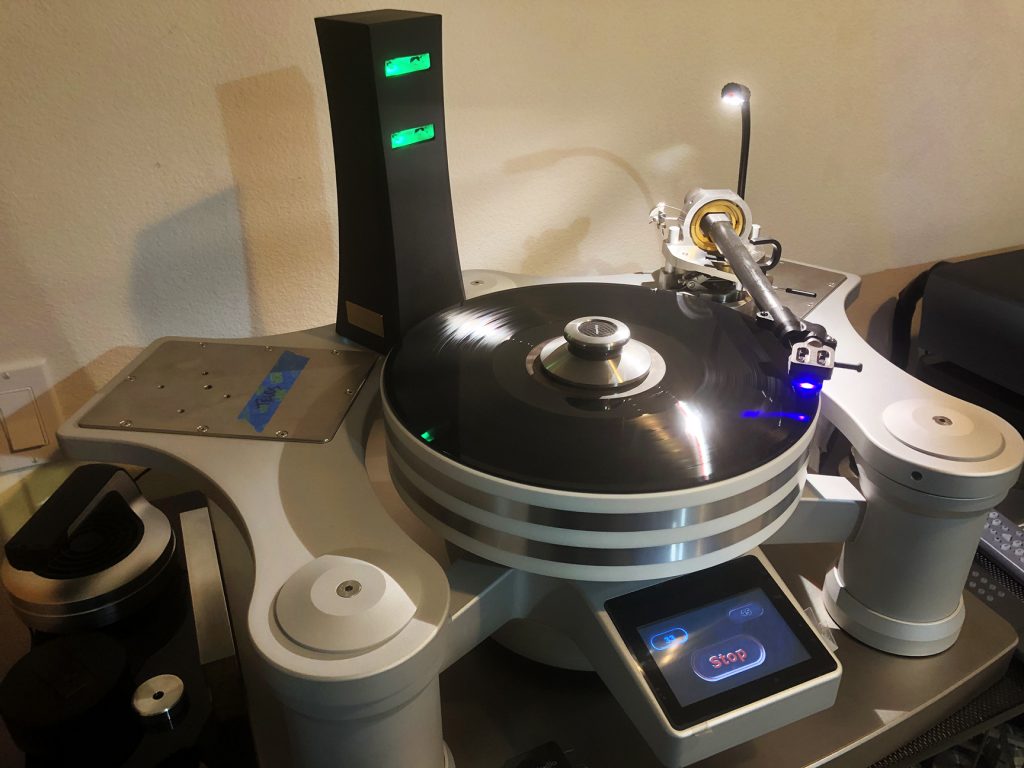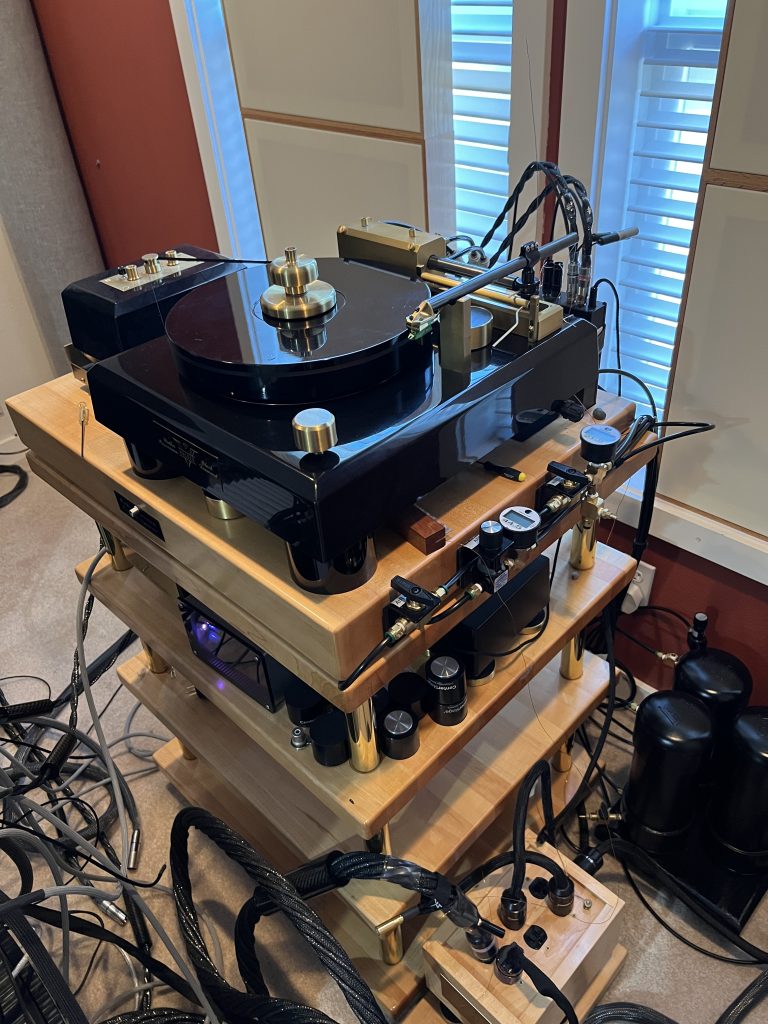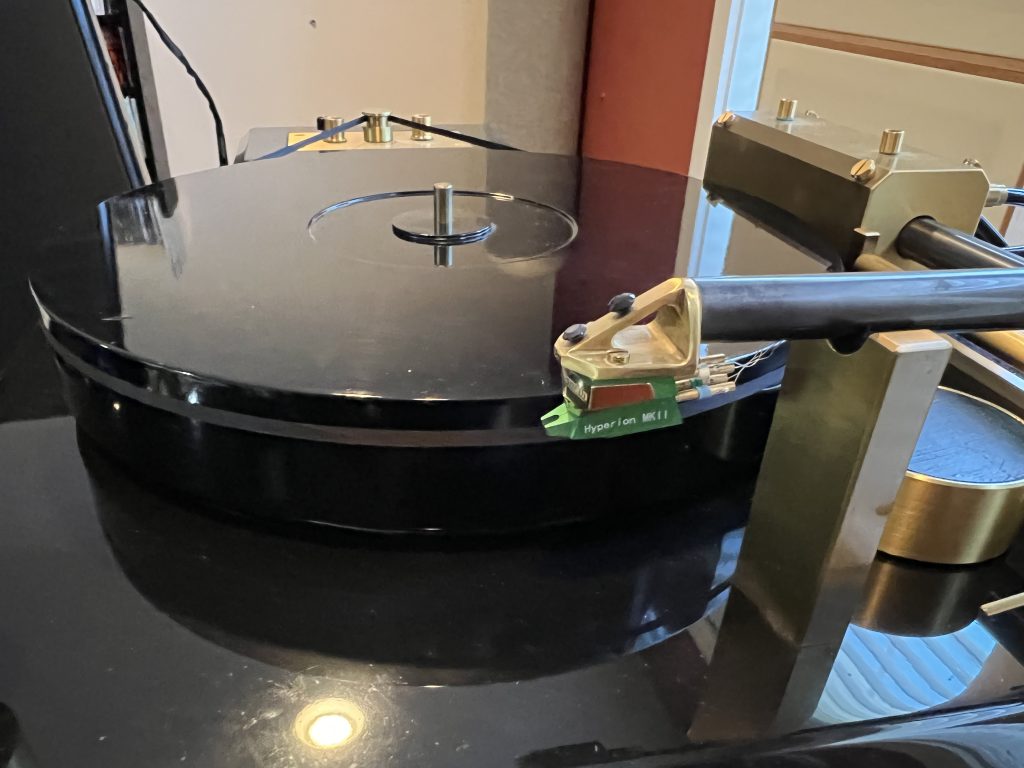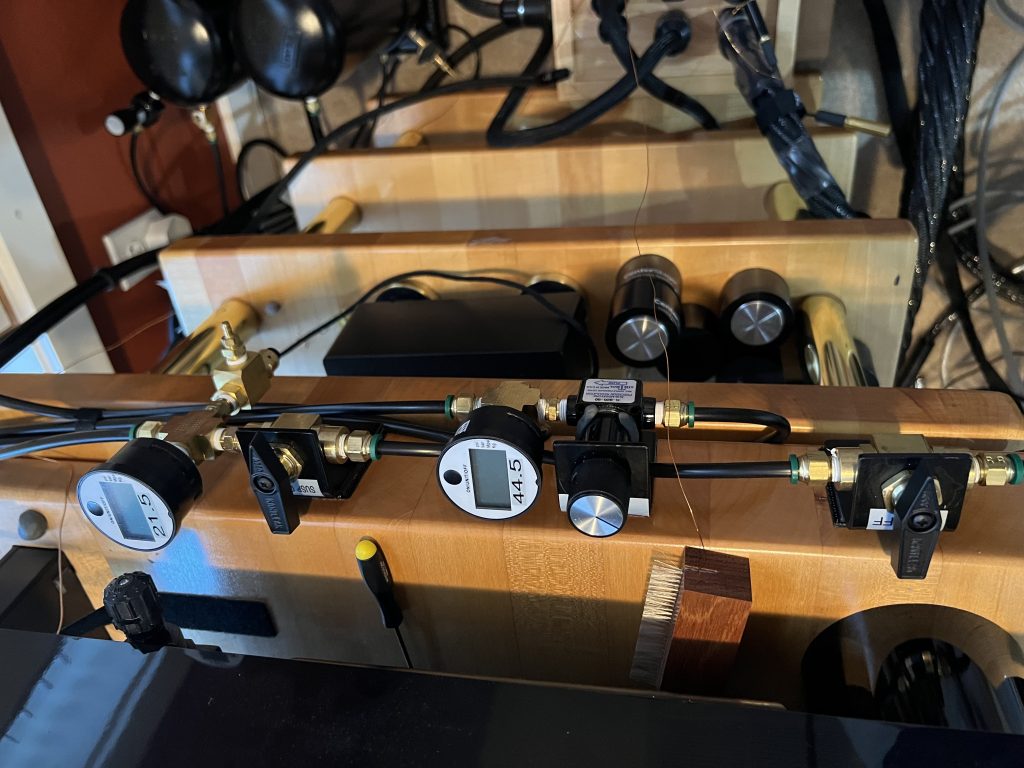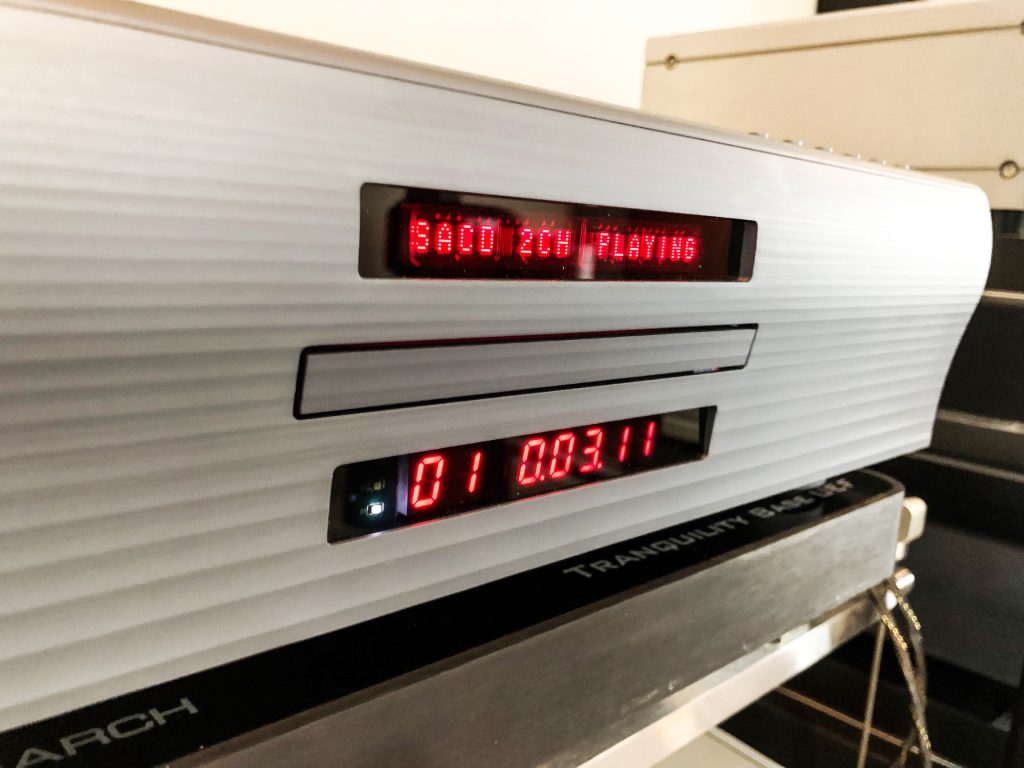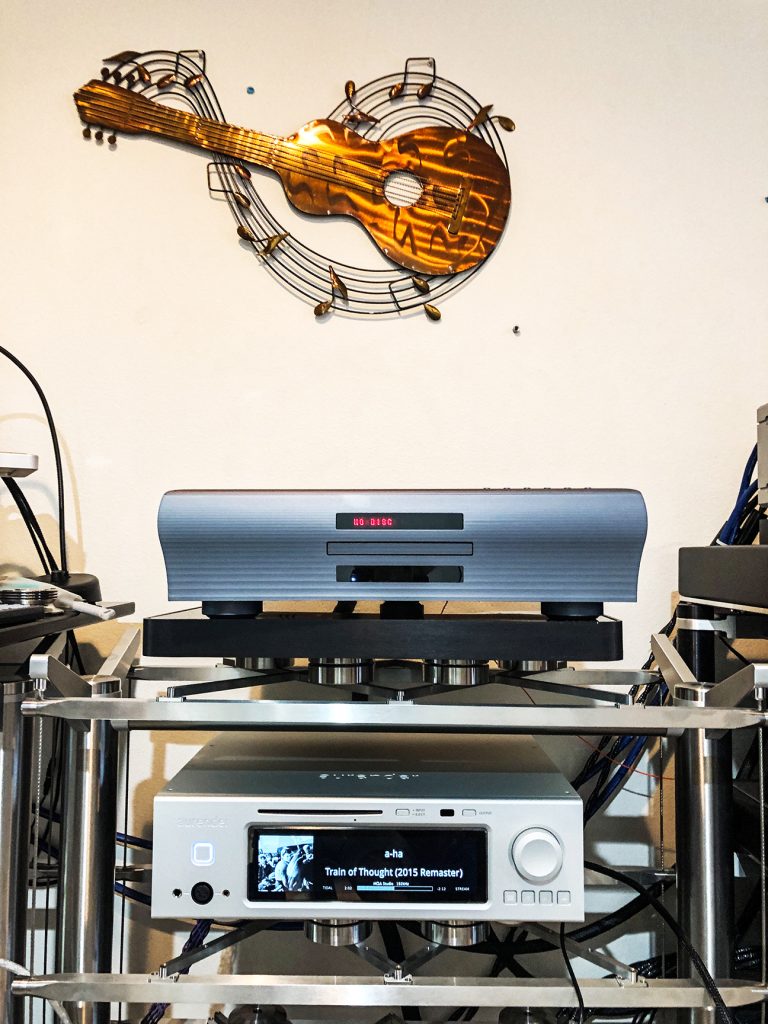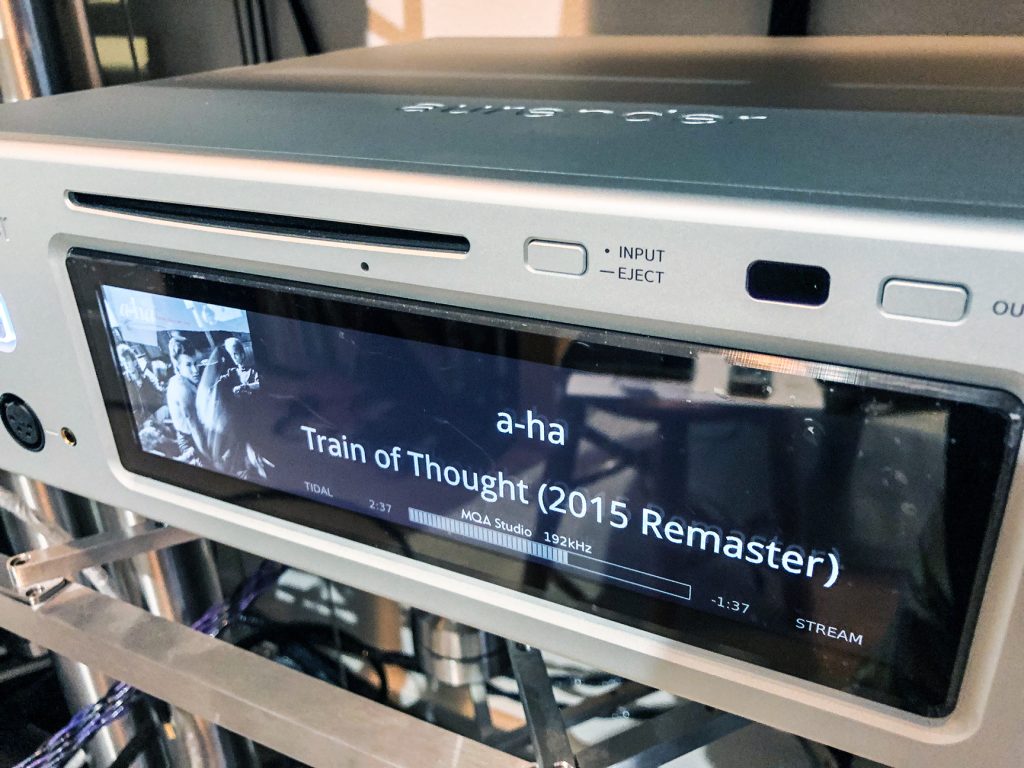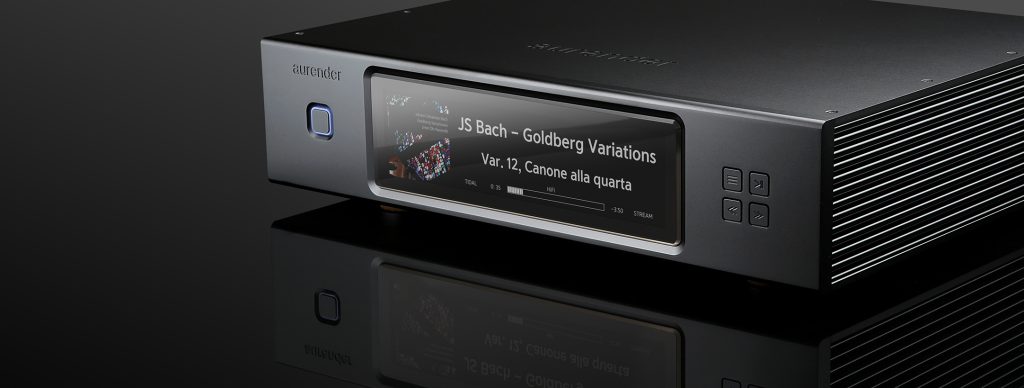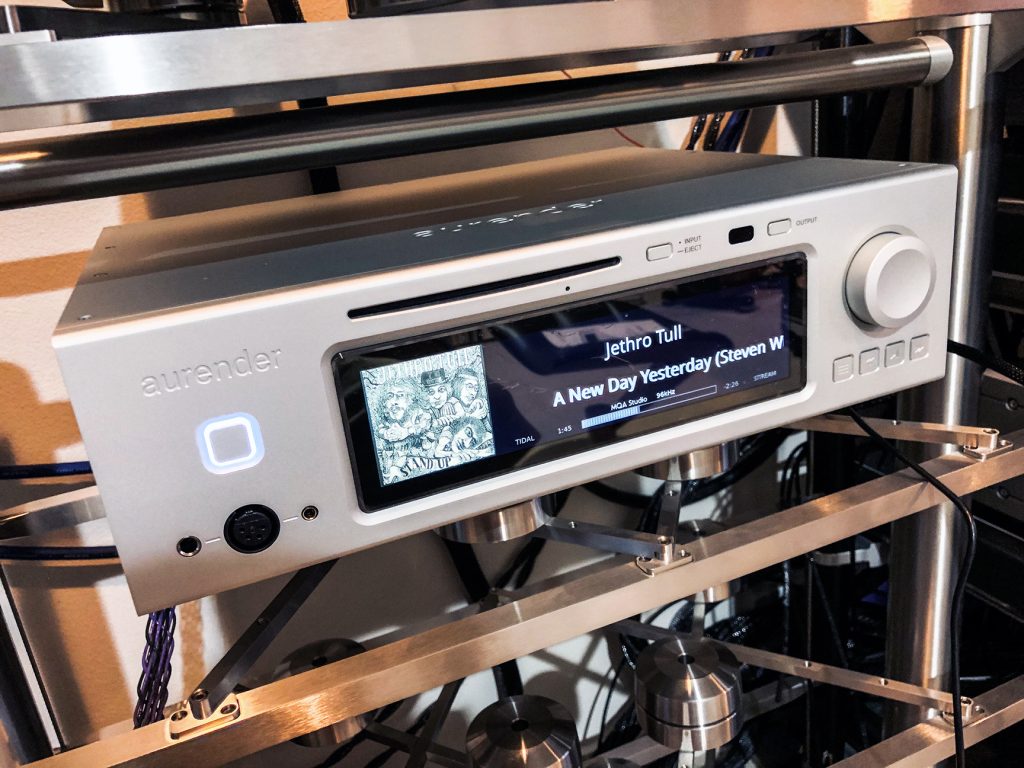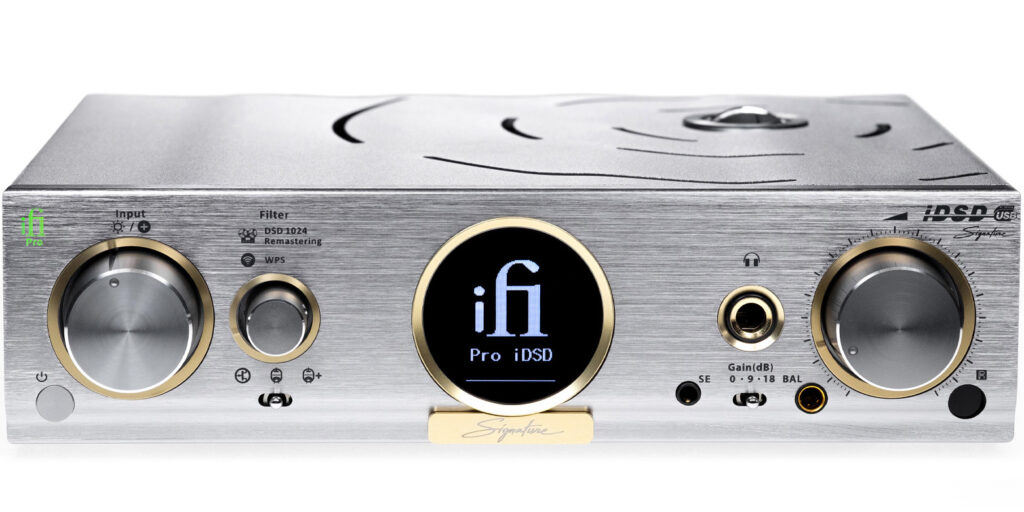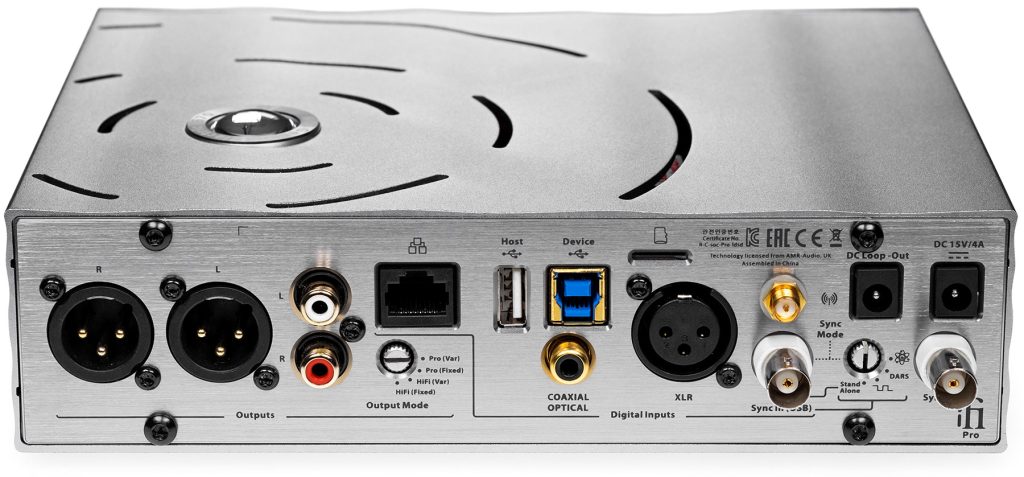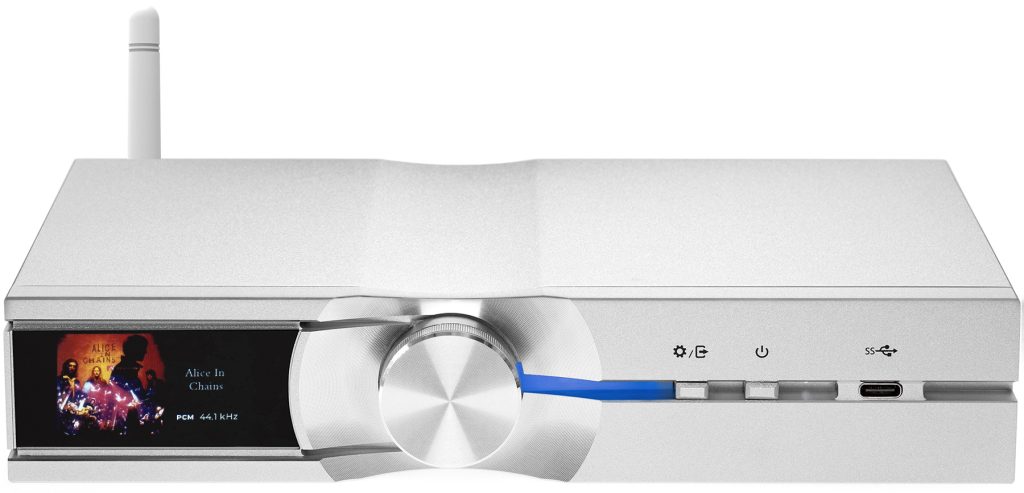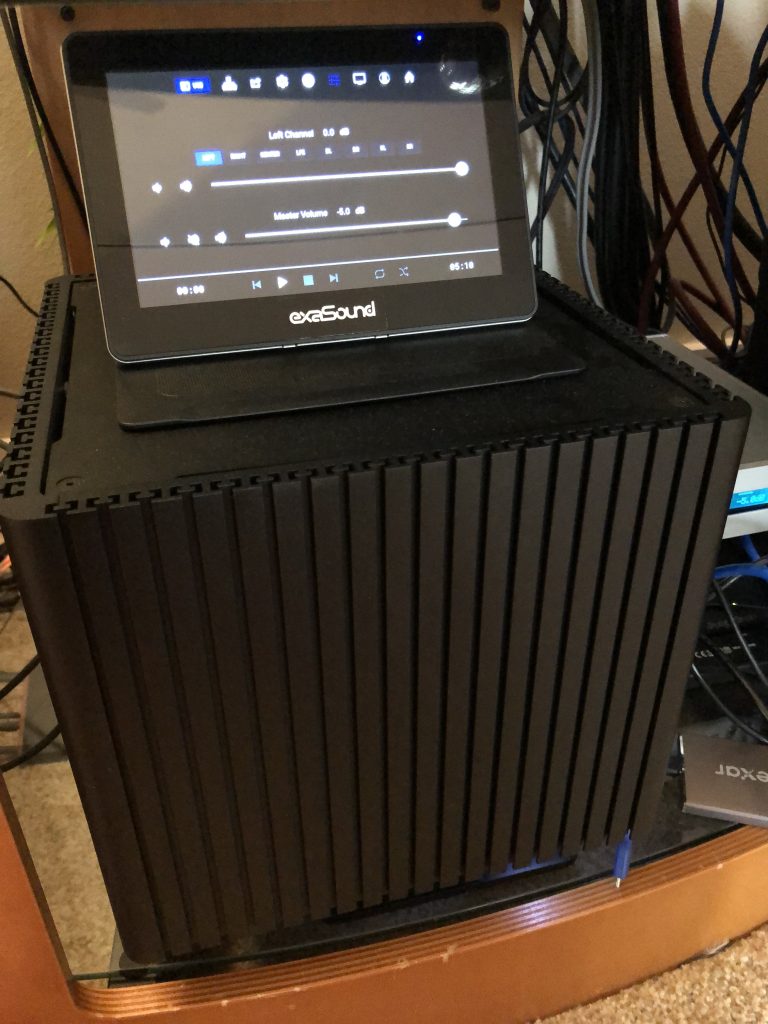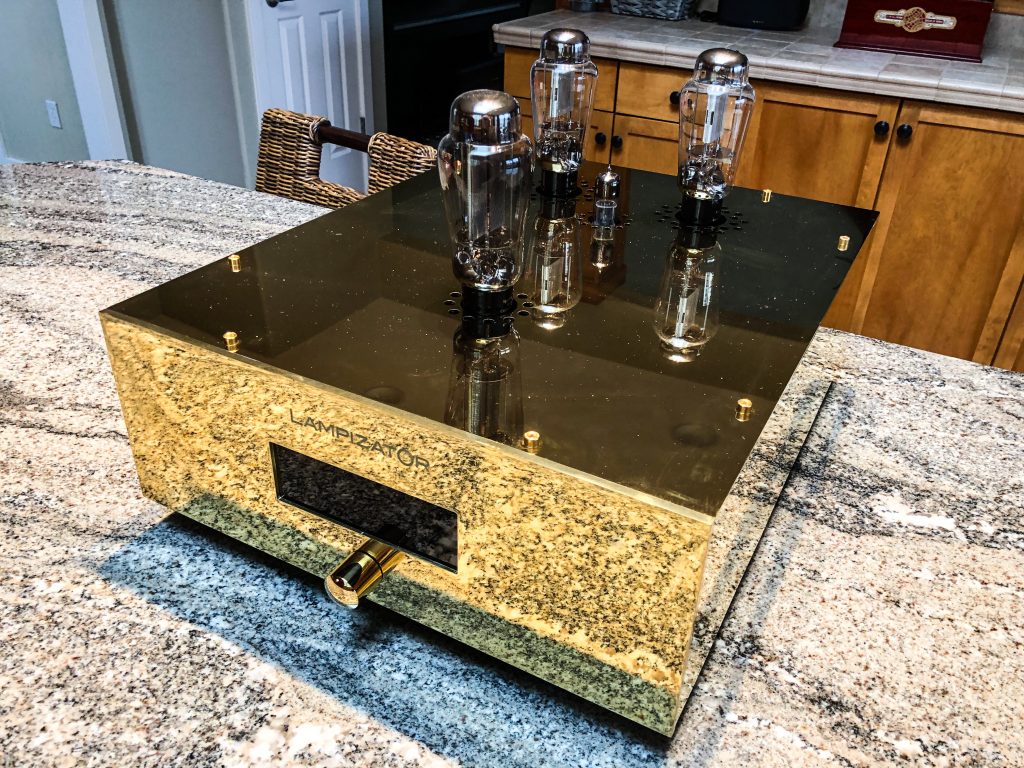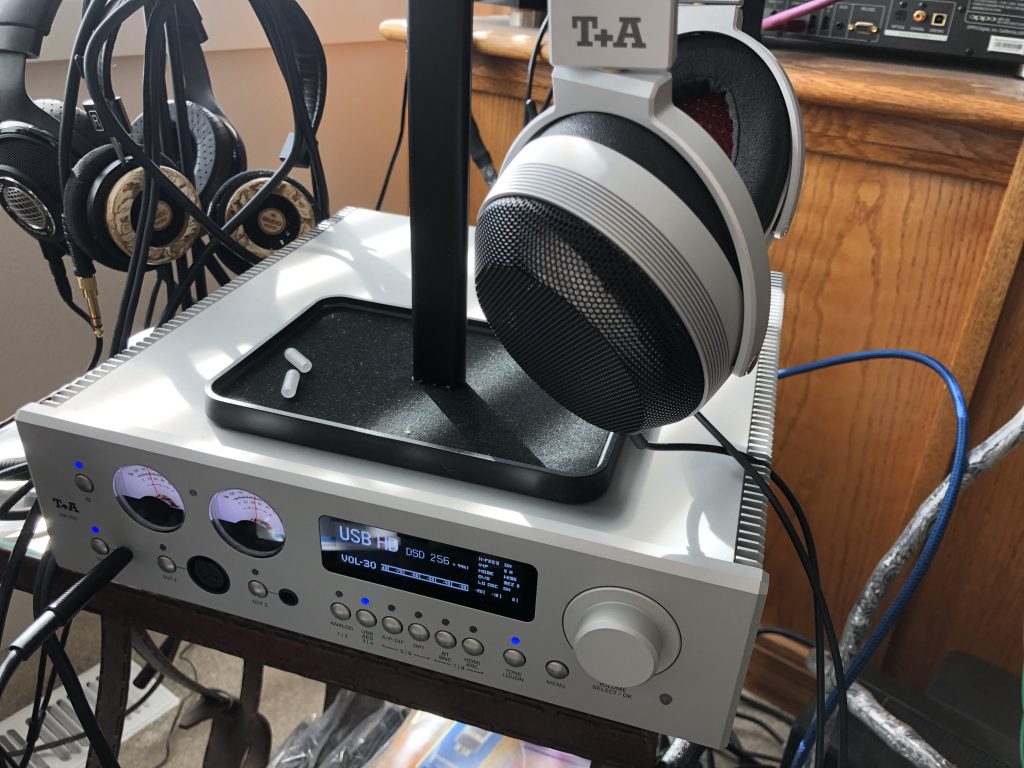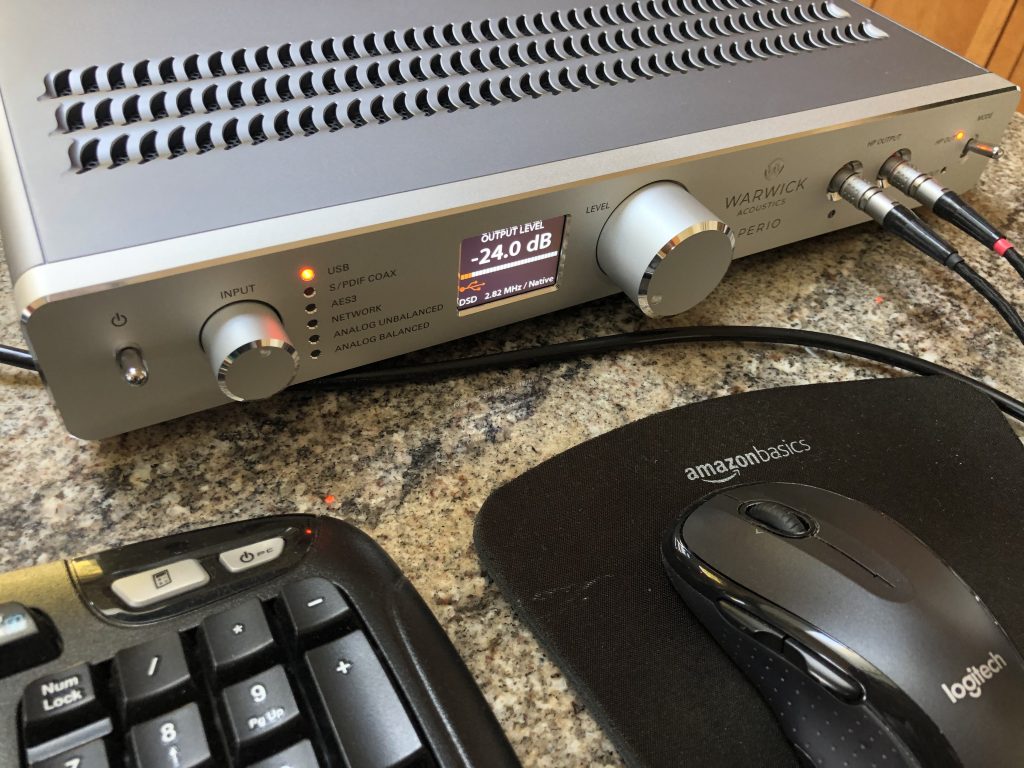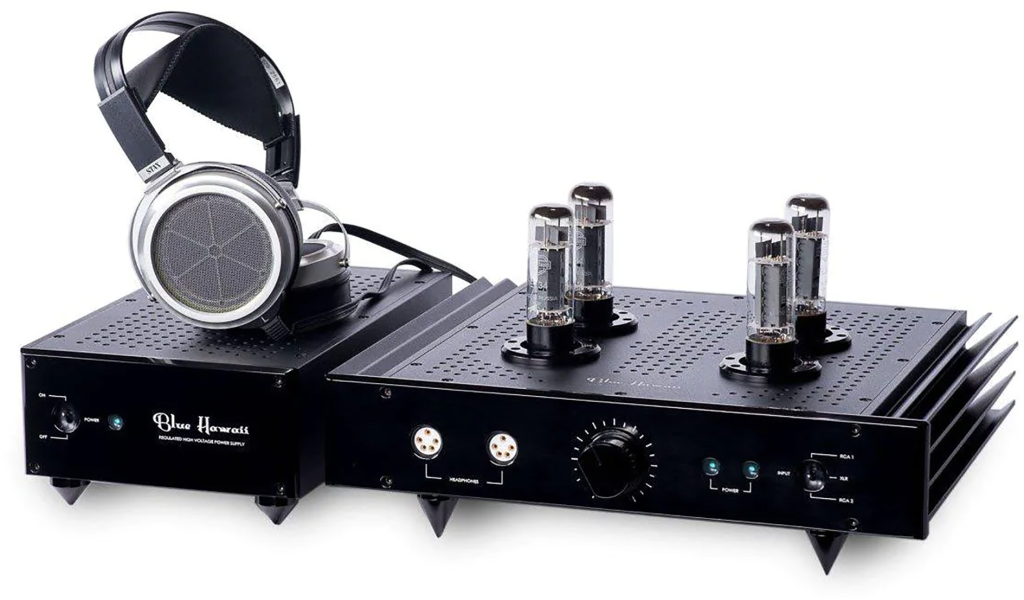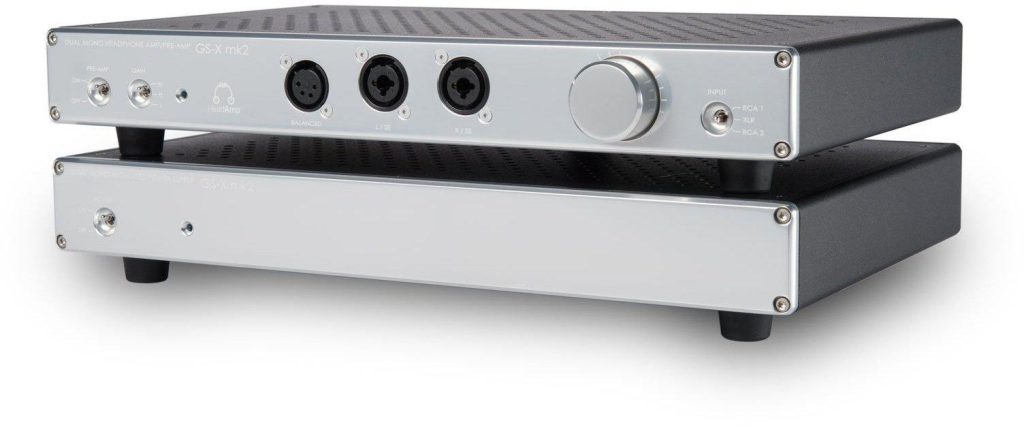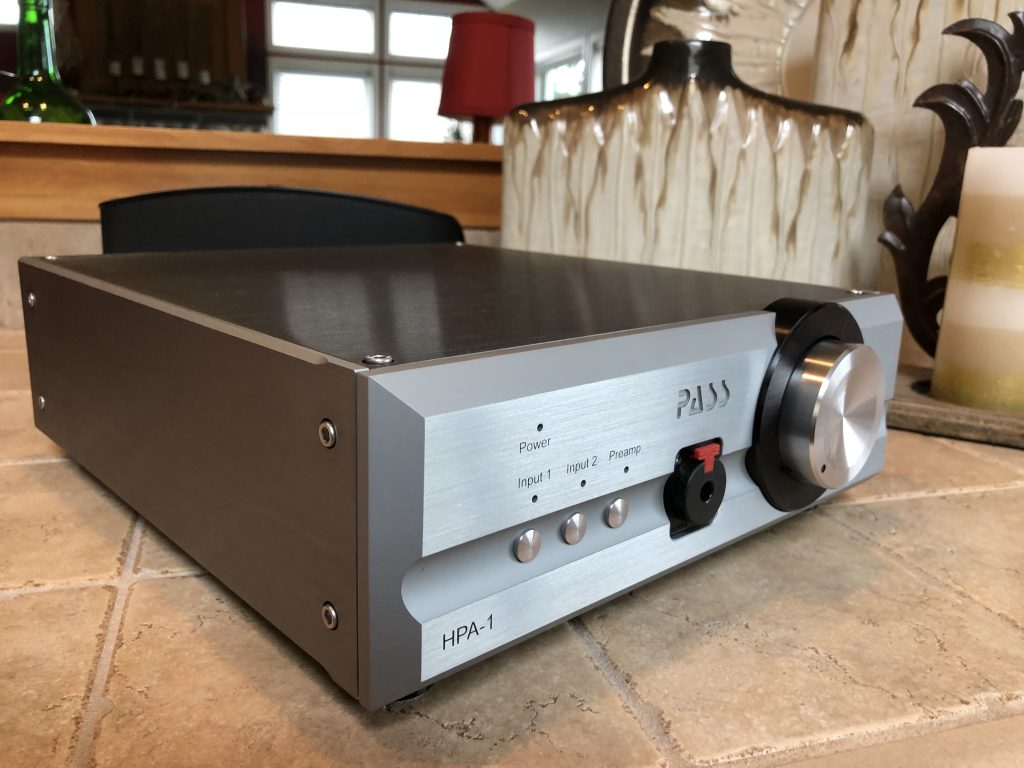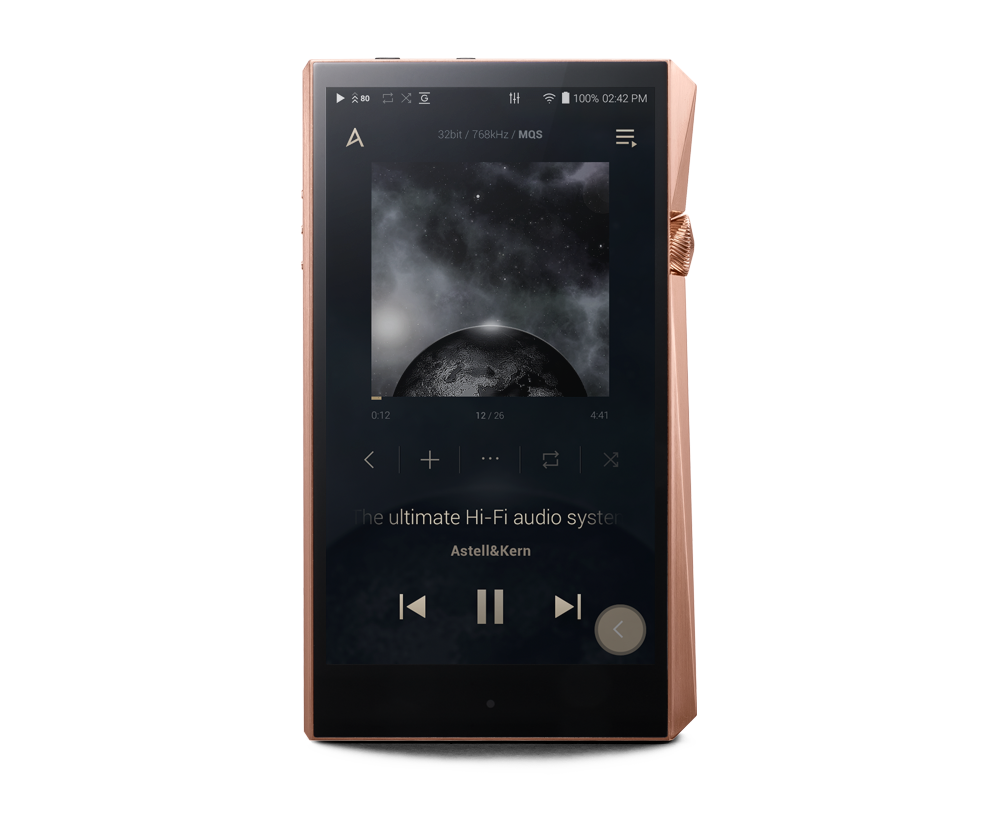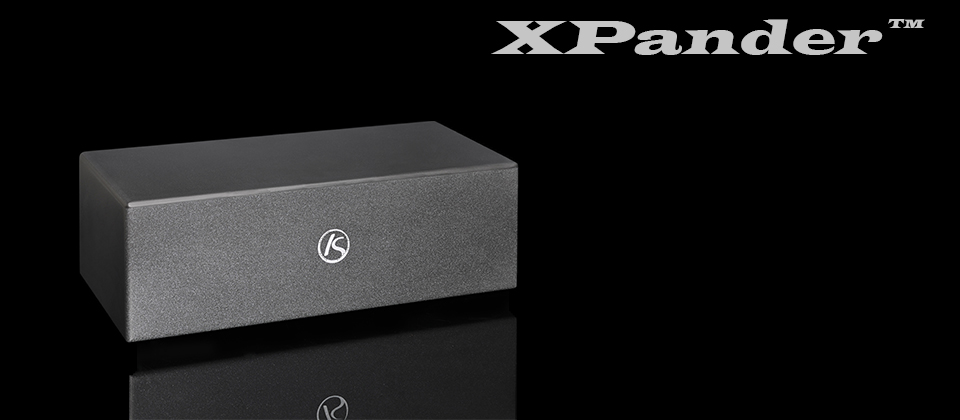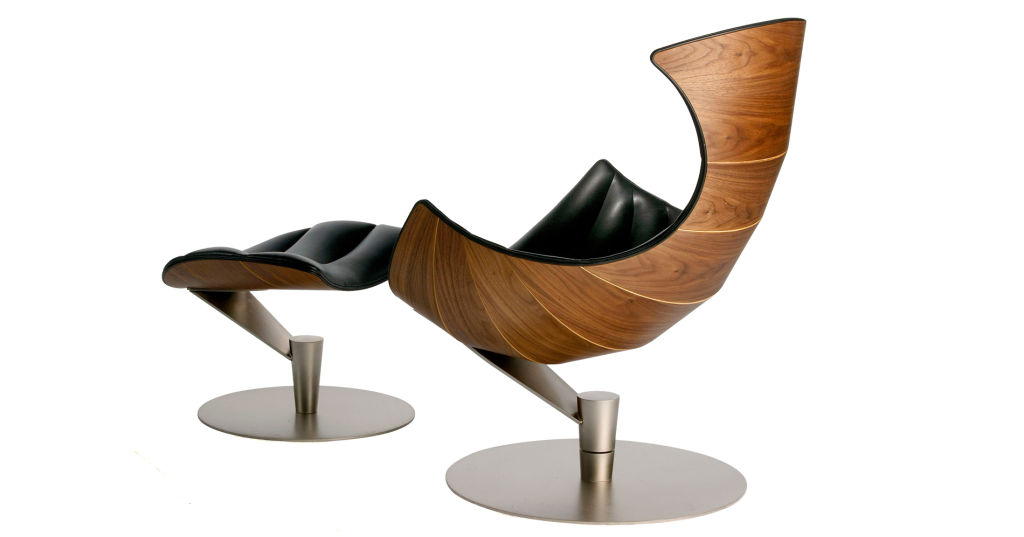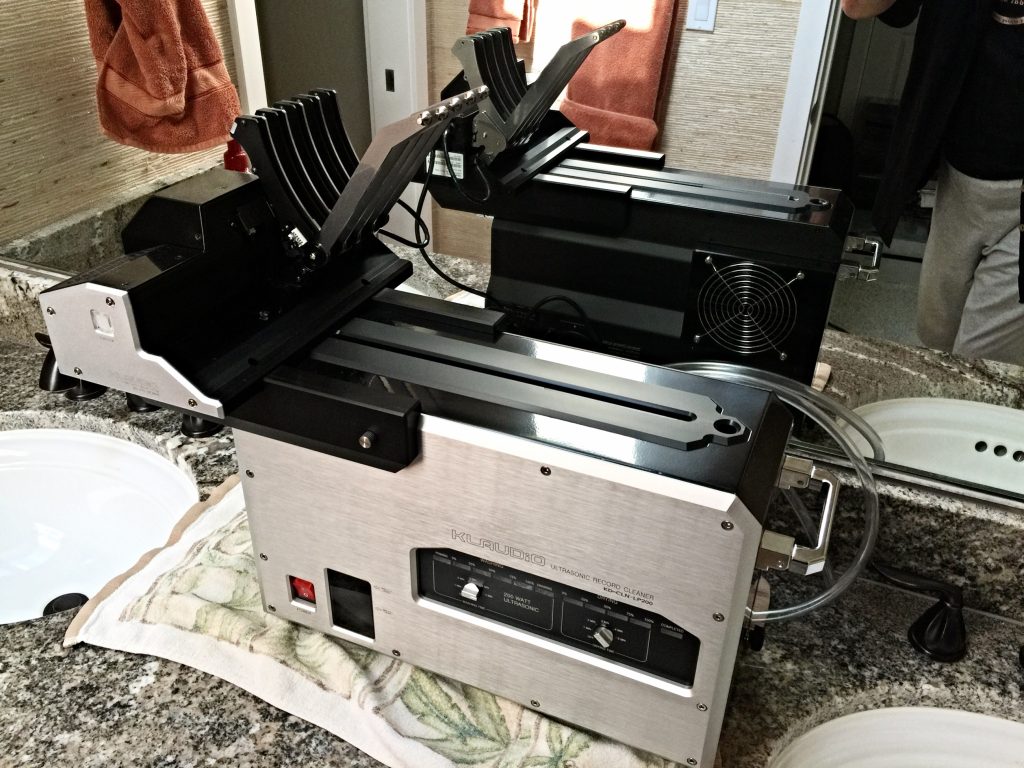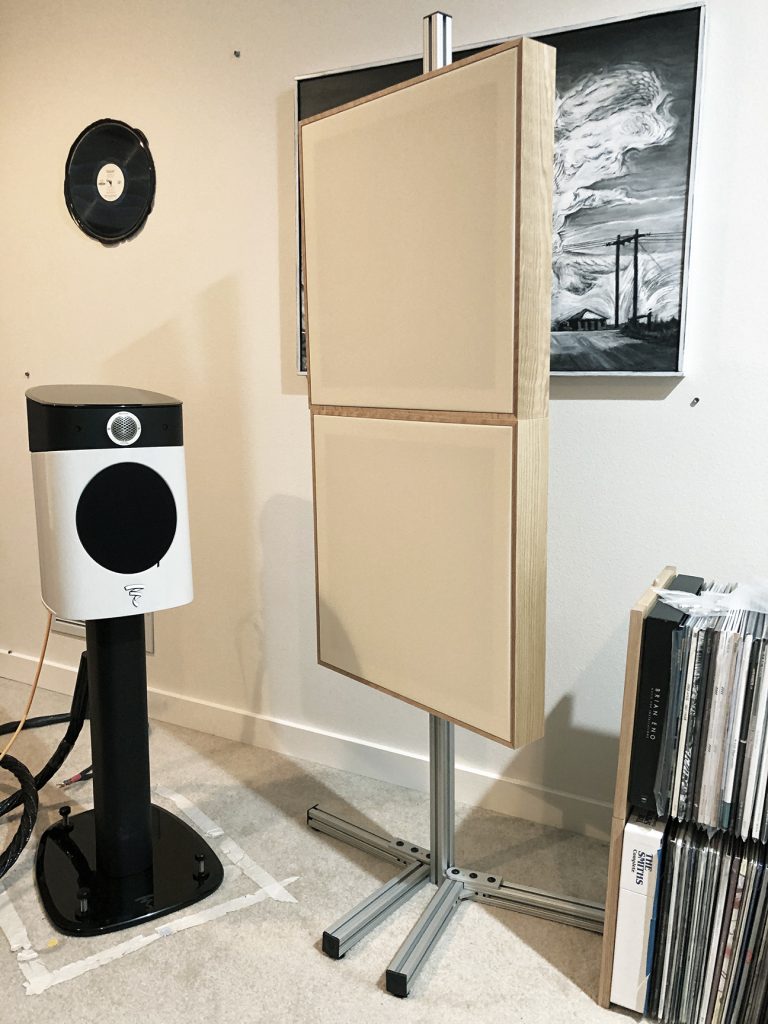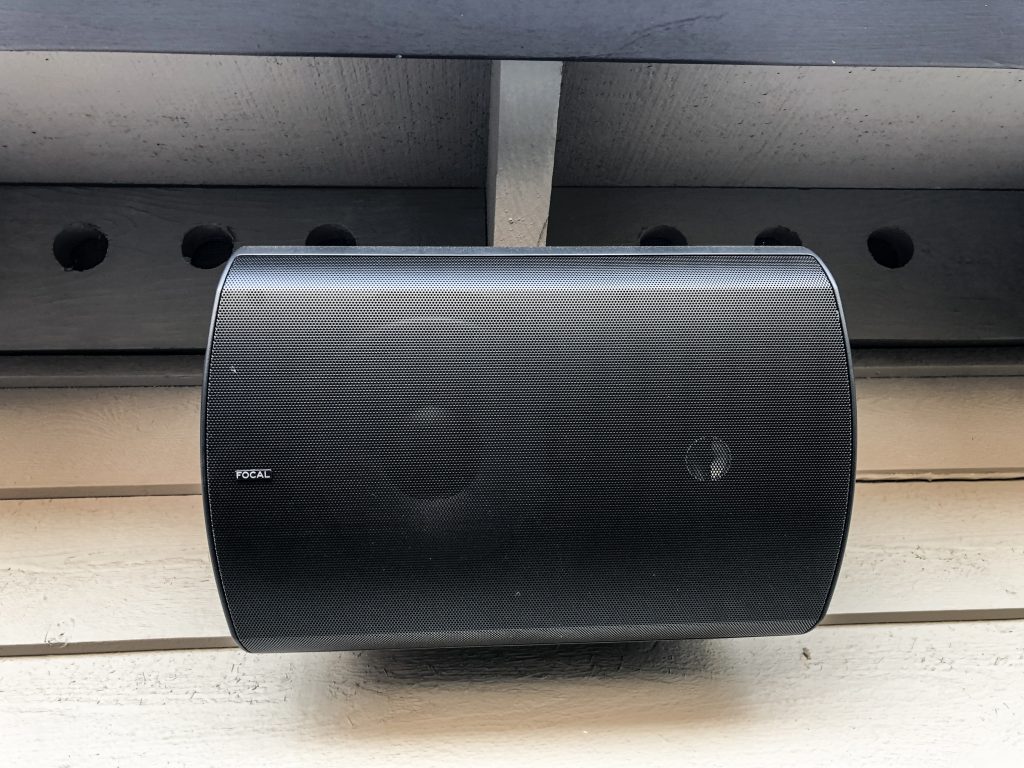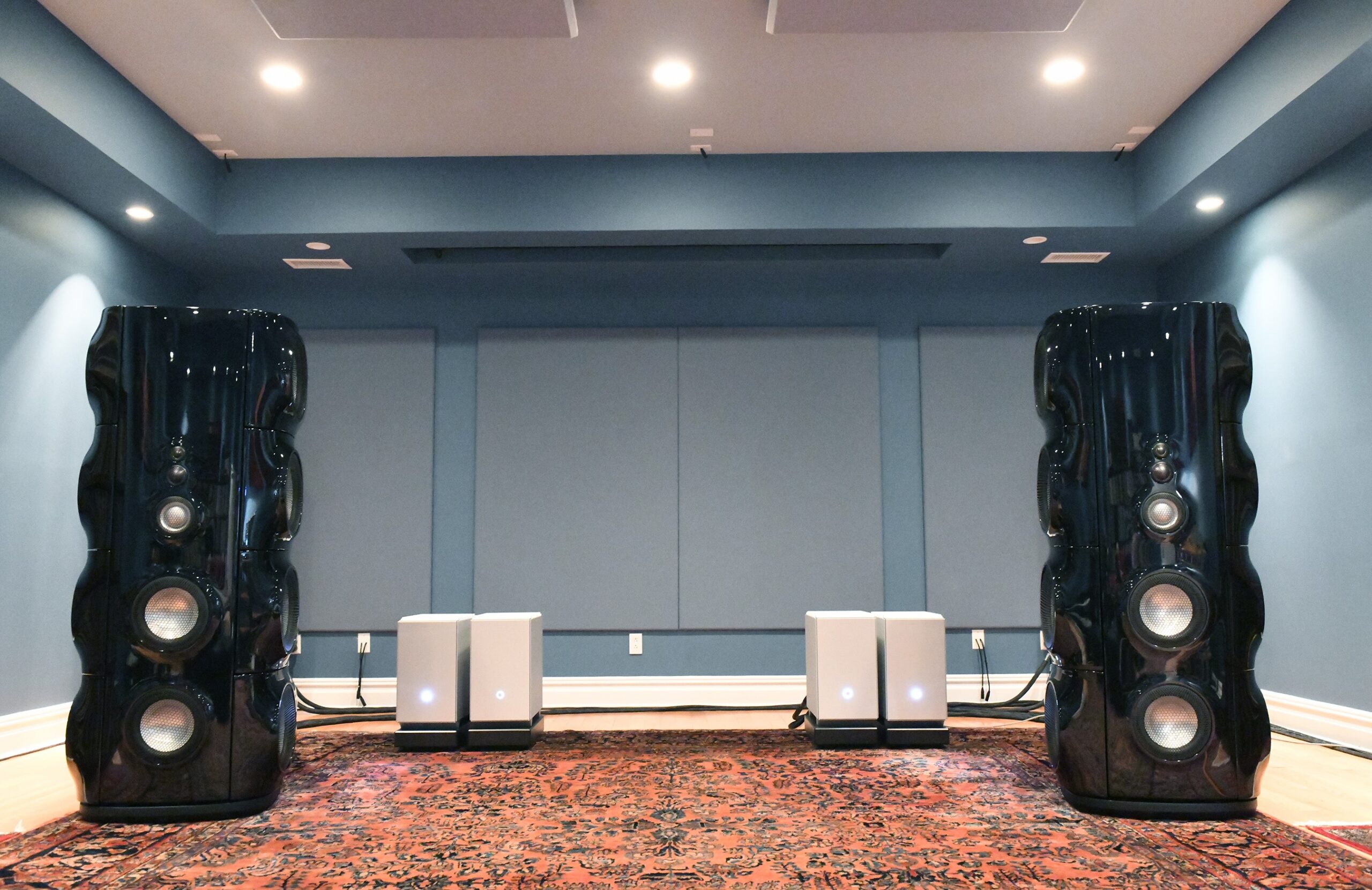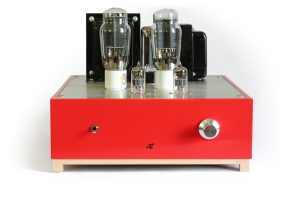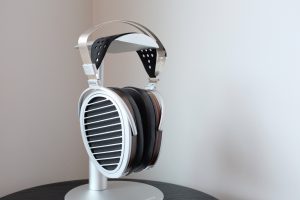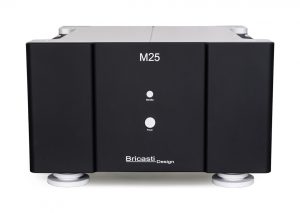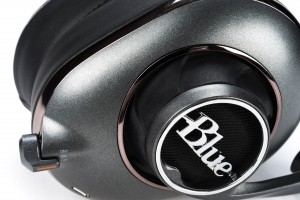High-end headphones and Personal Fi. I've evaluated a goodly handful of 'phones and headphone amps over many years, with some excellent results. Some were large cost-no-object designs, built for home, listening room, or office use only; others were compact and portable, for the music lover on the go. (I do a fair amount of flying, and appreciate good portable gear.) I also have some great headphones and headphone amps for stay-at-home. Either way, I'm well served.
As a result, over the years I've built up a collection of reference headphones, of various types. Electrostatic, Dynamic (both open and closed back), Planar Magnetic…over the ear, in ear (both generic fit and custom-molded)…a good cross-section of what's out there.
I've been more and more impressed with the gains that we're seeing in reference headphone systems over the past few years, though. For 2018, I thought that I would make a major effort to explore several truly great headphones and headphone amps. These are combinations that I've searched out or have been informed of over the past 18 months or so. The response from manufacturers has been quite favorable, and review samples were forthcoming. I've spent quite a lot of time here in my editorial office listening to the results…this is the first of several reports on what I've been hearing this year.
The striking Ayon HA-3 SET two-box headphone amplifier (photograph and image processing by David W. Robinson)
Charles Harrison of USA Tube Audio and Ayon Audio sent along the Ayon HA-3 Headphone Amplifier. Ayon Audio is a major player in the world of tubed audio, based out of Austria. This is a lovely two-box SET tubed design, with a separate power supply. Ayon is clearly staking out ground in a purist and minimalistic SET approach to headphone amplification, and is doing so with real seductive beauty to both eye and ear. I was really looking forward to hearing how the HA-3 would perform here at PF River-City-and-up-the-hill.
The Focal Utopia Reference Headphones
The Focal Utopia Beryllium Headphones upon arrival (photograph and image processing by David W. Robinson)
Every headphone amp review must also be a review of headphones, of course. What direction to go here? I had a lot of latitude, since the HA-3 would handle everything from 32-600 ohms comfortably. After some research, and some discussion, the good folks over at Focal sent along their Utopia reference headphones for my trial and evaluation for this headphone project. I had heard great things about the Utopias and their pure beryllium drivers, and wondered how they would stack up against other headphones here. Focal's courtesy and interest in what I was doing was quite pleasant, and speaks well of the culture at this large and well-known high-end audio company. (No, not all large high-end companies are this way.)
Specifications
Quantitative measures are not be-all and end-all in the world of high-end audio, of course. We're much more interested in how equipment sounds than in how it measures. (Pace, audio number crunchers and so-called "objectivists"!) But, properly understood, hardware information can help us to develop a mental profile of a given design.
For those interested, here are the specs for both the Ayon HA-3 and the Focal Utopias.
Ayon HA-3 SET Headphone Amplifier
- Tube Headphone amp, Pure Class A Triode
- Class of Operation: Pure Class A, SE-Triode
- Tube Complement: 2 x AA45 Mesh, 2 x 12AU7
- S/N Ratio: > 100dB (unweighted)
- Input Impedance: 50 kΩ
- Frequency Response at 32Ω: 15 Hz – 35kHz
- Harmonic Distortion (at 150mV): 89dB
- Output Power at 32Ω: 500mV
- Output Impedance – Headphone: 16Ω – 600Ω
- Line Input: RCA phono sockets
- Headphone output: ¼" Stereo Jack (6.35mm); 1 x low impedance (~64 ohm and below); 1 x high impedance (>~64 ohm – 600 ohm)
- Power Consumption: ~65W
- Dimensions Main Unit (WDH) cm: 22 x 30 x 20 cm
- Dimension Power Supply (WDH) cm: 22 x 30 x 10 cm
- Weight (Main Amplifier): 10kg
- Weight (Power Supply): 10kg
(A further list of product details is posted by USA Tube Audio for Ayon at https://www.usatubeaudio.com/product/amplification/ayon-ha-3/. I'd strongly recommend that our readers peruse this profile, as it includes additional information.)
In sum, a great collection of design excellencies. Pure Class A, SET, 45 Mesh tubes on the output side, very good frequency response, a broad range of impedances supported, separate 6.35mm (1/4") jacks for hi-Z and lo-Z output, and very solid power output. The volume control is solid and smooth in feel, and continuous in operation. The separate power supply acts as a handy and handsome platform for the amplification section of the HA-3.
Rear view of the Ayon Audio HA-3 showing the dedicated power connector from the external power supply and the unbalanced inputs.
Very nice, indeed.
And now for the Focal Utopia headphones.
Focal Utopia Headphones
- Type: Circum-aural open back headphones
- Impedance: 80 Ohms
- Sensitivity: 104dB SPL / 1mW @ 1kHz THD
- Frequency Response: 5Hz-50kHz
- Loudspeaker: 40mm pure Beryllium M-shape dome with carbon fiber yoke
- Ear pads: Pure lambskin
- Weight: 1.08 lbs.
- Cable length: 3 meters
- Connectors: 1 x ¼" (6.35mm) stereo jack; 1 x 9.5mm Lemo
- Carrying case: 326mm x 260mm x 164mm
Focal makes a big point about the fact that the Utopia drivers are 40mm pure Beryllium, an element that's both light and very strong. They have been shaped in an "M"-shaped driver configuration, which according to Focal has allowed them to avoid the use of a crossover network, while still having a nominal frequency response of 5Hz – 50kHz. These extraordinary drivers, mounted in a fully open-back design, lead to a blessed union of spaciousness with dynamics and detail that is mind-blowing (see my comments on the sound below).
The packaging was of exceptional quality, and would protect the Utopias against anything except the most violent damage. (That is not a dare, UPS and FedEx.)
So we have a lowish impedance (80 ohms) pair of drivers that are constructed of modern materials that are housed in a beautifully crafted open-back housing and framework. The headphone yoke is constructed of carbon fiber with lines that flow directly to the 'phones themselves; the earpads are made of lambskin for maximum comfort.
These are all elements of an extremely righteous headphone design…but how would they sound over time?
The Sonic Chain
After some trial runs, I made the decision to try the Ayon Audio HA-3 with the Focal Utopias. They seemed to work and play well together, and I'm always looking for the good mojo of audio synergy, that wild and elusive beast.
The linkage that I used ran from the ModWright-modified OPPO BDP-105 two-box tubed unit, the PS 9.0 Power Supply with upgraded rectifier tube. This was home base for SACD playback for the HA-3 downstream. SACDs were the main source that I used for my evaluation of the HA-3/Utopias. RCA interconnects were JENA Labs Symphony from the unbalanced outputs of the ModWright BDP-105 to the unbalanced inputs of the HA-3. The power cables were a pair of JENA Labs braided and an ALO Audio Green. Power conditioning and distribution was courtesy of Furutech's Daytona 303, powered by a Furutech NCF Power Cable plugged into a Furutech NCF AC Receptacle. (Later I shifted from the Daytona 303 to the latest iteration of the Walker Audio Velocitor, the VelocitorsS, cabled with the Silent Source Music Reference cable recommended by Lloyd Walker himself.) The headphone cable was the Focal-supplied two meter cable.
The output tubes on the ModWright BDP-105 Universal Player (photograph and image processing by David W. Robinson)
Overall, this is a highly-tubed pipeline, with no less than nine bottles in play during listening. The results with the precision of the SACD sources that we listened to reflected the glowing tubulosity of the signal chain. More on that just below.
After checking to be sure that all was working out of the box, I ran the HA-3/Utopias on auto-play for about five days with the ModWright OPPO BDP-105, changing the SACD from time to time. I found that after about 100 hours, the sound of the two started to bloom nicely, and would continue to do so until well after 250 hours. This was for the benefit of the HA-3 and Utopias; my ModWright BDP-105 is fully broken in as of years ago.
The Sound
Well now…after 100 hours, I really dug in on listening daily to this combo while working at my desk for Positive Feedback. I regularly spent 4-5 hours in extended sessions, while going from disc to disc. As far as the music goes, we have a very large SACD reference library here at PF River-City-and-up-the-hill…approaching about 7000 discs these days.
Yes…really.
For evaluation, I used a broad array of music, with SACDs from Analogue Productions, Sony Music, Audio Fidelity, Universal, SHM-SACD, EMI (Universal Japan), Esoteric, Top Music, RCA Living Stereo, Mercury Living Presence, Reference Recordings, 2L, Stockfisch, DG, Archiv, Opus3 Records, and Blue Coast Records. This meant that I had a very wide variety of music to use with the HA-3/Utopia tandem. And by now, I've put hundreds of hours on them…you can do that when you're listening while working at your desk for months.
And what's my scorecard for the Ayon Audio HA-3 and Focal Utopia headphones?
Transparency: I've mentioned a number of times that I consider transparency to be the king of audio virtues…and now I'm saying it again. This combination of Pure Class A SET and open-back Beryllium drivers did an absolutely smashing job of taking the ModWright OPPO BDP-105's tubed output and launching it into a cranial internal orbit. No muss, no fuss…just an exceptional sense of clarity, done over a deep, dark background.
"Crystalline" isn't quite the word I want here…that's more the traditional realm of electrostatics…but it's pretty damned close in the case of the HA-3/Utopias. The open-back design really does give a nicely enhanced sense of openness, helping the transparency of the Beryllium drivers to shine.
Spatiality: Excellent. Naturally headphones cannot be evaluated for imaging/soundstaging the same way that loudspeaker-based systems can, but they can do more or less well at giving the listener a sense of space in the old interaurals. Really great recordings, like my old and highly favored warhorse Rhapsodies with Stokowski on Analogue Productions RCA Living Stereo SACD, just float, with a powerful sense of the hall…even on headphones. For example, the first cut, Liszt's Hungarian Rhapsody No. 2, is a The HA-3/Utopias team really impressed me with the way that the recording sounded expansive and extended, something that lesser electronics and headphones simply don't do for me.
Dynamics: Wow! On the macro side, big-time slam-dunk kapowie! No overload; no congestion; no breakup. The Ayon Audio HA-3 seems to have all of the oomph necessary to propel dynamic references like Reiner's Scheherazade on Analogue Productions SACD, or the immortal performance and recording of Respighi's The Pines of Rome on SACD from the same source. Likewise, the soundtrack to Bladerunner on Audio Fidelity SACD, the "End Credits" track, simply turns your head into a punching bag and cuts loose!
Who says that SETs can't pounce and bounce?!
In fact, I found that a volume of 9:00-9:30 on the dial was all that I needed for many recordings, while 10:00 or so was fine for those that needed a bit more gain (or that I really wanted to groove with!). Like, say, Eric Clapton's Timepieces: The Best of Eric Clapton on Audio Fidelity SACD. One word: "Layla"!
(Damn. I am really missing Audio Fidelity…they had such great A&R!)
Detail: No problems here. The presentation of detail, from delicate to daunting, came through without any hitches. The 45 tubes on the HA-3 sitting on their separate power supply and operating in Pure Class A mode sent the Focal Utopias a signal that allowed the Beryllium drivers to parse micro- and macro-details in a most satisfying way.
I checked out a recent rave of mine. Being a huge fan of traditional American finger-pickin' style on 12-string guitars (hi, Cuz Keith Knight!), I had to spin Andreas Rohde's Resonance, which is Vol. 2 of the "Analog Pearls" series on Stockfisch SACD. Absolutely killer…a brilliant transfer from the original analog tape to DSD via a Meitner A/D…and nails it! Listening to the fingering and fretting was a huge pleasure via the HA-3/Utopias tandem; every bit of Rohde's mastery of the 12-string, reminding me strongly of Leo Kottke, who certainly must be a powerful influence, was immediately discernible.
Absolutely brilliant.
Transient response: Absolutely excellent. This audio virtue, which my good audiobud Lloyd Walker calls "quickness," is there in the HA-3/Utopia duo, in spades. In fact, while it was quite good with the Furutech Daytona 303, it seemed to get even better when I installed Walker Audio's latest generation power distribution unit, the VelocitorsS. Good grief! (Note that it is plugged into the same Furutech NCF AC Receptacle, using a Silent Source Music Reference Power Cable, that the Furutech Daytona 303 is connected to.) I definitely heard an improvement in transient response…the "quickness" that Lloyd refers to…with that unit supplying the HA-3. It's obvious that hanging onto the transient tracks is something that it does well, and even better with the VelocitorsS in the mix.
Bass: This is easy: the HA-3/Utopias reached deeply into the nether regions. Not boomy at all…deep, but well controlled lower frequency performance was evident from the get-go with the Focal Utopias. Not overly tight; I don't like overly tight bass. (Come to think of it, I don't like overly tight anything…clothes, budgets, relationships, cigar draws, and people.)
Musical bass, bass that is round and breathes.
And it was there, big time, when the HA-3 and Focal Utopias handled recordings like 2L's absolutely fantastic SACD, Edvard Grieg – Piano Concerto like a world-class champion duo. I'll be categorical: Any piano lover who can play SACDs and does not have this one in his or her collection is missing a glorious recording! One not to be missed. And there's an utterly cool secret behind how this unique recording was made, one that you'll find out about when you read the very fine liner notes.
Nope! I'm not going to tell you. You'll have to purchase this Blu Ray/SACD combo pack to get in on the mystery. And just wait until you hear it…
The entire disc will give the bass region a well-balanced workout. You can thank me later.
Or check out "The Pines of the Appian Way," track 4 on Pines of Rome/Fountains of Rome, on the classic reference recording by Reiner and the CSO done to SACD and produced by Analogue Productions. Deep, brothers and sisters.
Midrange: Gorgeous. Here is the traditional stomping grounds of excellence with SETs, and the HA-3 just glows with midrange gloriousity and sensuality. Any recording that excelled in the midrange sounded wonderful here, period. I have listened three or four times to a recording that my good audiobud Joe Cohen of The Lotus Group introduced me to, Rameau's Une Symphonie Imaginaire, Minkowski and Les Musiciens du Louvre, on Universal Japan's single-layer SHM-SACD.
I have both the LP and two different SACDs of this recording, and have heard it many times. This recording is highly dynamic, but also features excellent in all tonal ranges. The midrange is simply lovely, and shows that the HA-3/Utopias are exceptional here.
This is confirmed by the very fine recording of Sir Georg Solti and the CSO performing Debussy and Ravel (Ravel: Bolero, Debussy: La Mer & Prelude a L'apres-Midi D'un Faun), on Universal Japan/Decca single-layer SHM-SACD. If you need midrange goodness in your life, this will certainly deliver it. The performance of the HA-3/Utopias was simply delicious in every way.
Treble: The combination of extended frequency response on the Focal Utopias, its open-back design, and the high performance of the Ayon Audio HA-3 provided the best upper frequencies that I can ever remember experiencing in a dynamic headphone. All music, all types…I would never have guessed that I was listening to dynamic 'phones.
Harmonics: The harmonic structure…that is, the way that all frequency ranges blended with one another…was remarkable with the Focal Utopias. Focal talked about the fact that their M-configuration Beryllium driver allowed them to avoid crossovers and complicated configurations. As they say on their Website, "Utopia are unique: they are the world's first audiophile headphones featured totally open-backed full-range speaker drivers with pure Beryllium 'M'-shaped domes. The acoustic quality of this exclusive solution allowed Focal to avoid the use of any crossover or passive filtering process to achieve a frequency response from 5Hz to 50kHz!"
This is what I'm hearing over the months that I've been listening: an extraordinary seamlessness to the music, with complete coherence from top to bottom and back again.
Organics: By "organics," I mean the way that an audio chain brings together all other sonic virtues into something more: a living, breathing, living whole, one that makes you listen on and on and on. Some speak of "musicality" (as do I, in a different way), others talk of "gestalt."
Me, I think of truly great components as bringing it all together, without leaving anyone out of the banquet. This is when fine audio crosses the line into the truly transformational, connecting at the level of soul, and fanning the flames of same.
You know. Organic.
The HA-3/Utopias have this, in spades.
Comfort: Fantastic! The Focal Utopias allow me to listen for hours on end, which means that they are of great benefit to me as I write and edit, which I prefer to do to music.
Instead of having to take frequent breaks from listening, due to headphone pinch, or pad discomfort, or overheating, the Utopias are top-rank for their pure comfort. The lambskin ear pads are a major blessing to those of us who do appreciate the virtues of long stretches of fine listening while working.
Reliability: No problems to report. The Ayon Audio HA-3 and Focal Utopias have not glitched at any time, and that's after hundreds of hours of heavy use. Thumbs up here.
Conclusion
You can see this freight train a'comin', I reckon.
To say that I really love the Focal Utopias and Ayon Audio HA-3 is not an overstatement at all. Here we have a combination of tubic goodness and state-of-the-art design and execution that demonstrates that the possibilities for the audio arts are by no means exhausted. To hear a Pure Class A 45-based SET with its separate power supply take a tube-based SACD output and feed a cutting-edge reference headphone like the Focal Utopias was to find a deep joy in the music. And as I've mentioned, the comfort of the Utopias allowed me to do so for hours on end…as I'm doing right now, in fact.
No quibbles, no problems, and fantastic performance from this dynamic duo. Just months of great listening, so good that I just dug my recordings for hours on end. They just flowed and flowed…
Verdict? I put both the Focal Utopia Reference Headphones and the Ayon Audio HA-3 Headphone Amp in the top rank of this component class that I have heard. Absolutely brilliant in every way. (In fact, both will be receiving Brutus Awards from me when I announce them next week! It's close enough that I can let that secret leak.)
The Focal Utopias and the Ayon Audio HA-3 therefore earn a "Ye Olde Editor's 'Very highest recommendation!", and that with great enthusiasm. In fact, I have have made arrangements to purchase the Focal Utopias, and will be keeping them here in our PF hardware reference library for ongoing use. Yes, they're that good.
And the HA-3? We'll see what happens….
Meanwhile, if the budget range works for you, and you're in the market for great headphone sound, you should definitely be checking this combination out. They're splendid!
Audio HA-3 SET Amplifier
Retail: USD$4500; on temporary sale (as of 11/21/18) at USD$3900
Utopia Headphones
Retail: USD$3999
Ayon Audio
US Distributor
USA Tube Audio
8355 E Butherus Drive
Suite 1
Scottsdale, Arizona 85260
USA & Canada: 1-800-676-1085 Ext 2
Mexico: +52-55-8525-6102
International: +1-323-657-5993
Focal
For all Focal contact information, dealers, and options (it is a large and complex company), go to https://www.focal.com/en/contact.
Images courtesy of Ayon Audio and Focal, unless otherwise noted; cartoons by Dan Zimmerman; image of the Cheshire Cat by Sir John Teniel, in the public domain.





